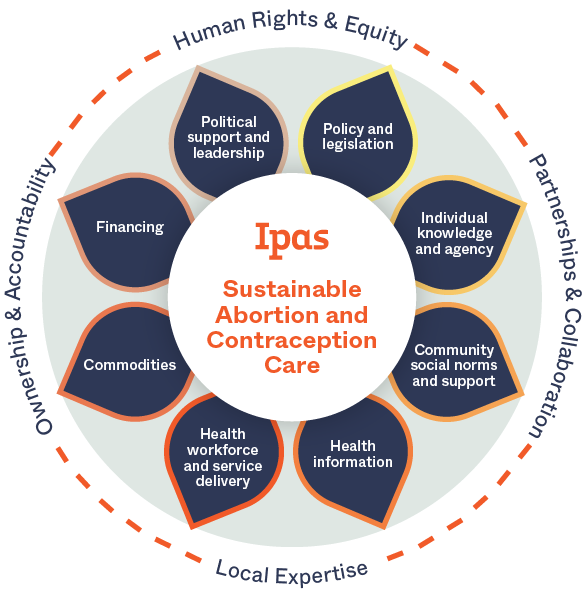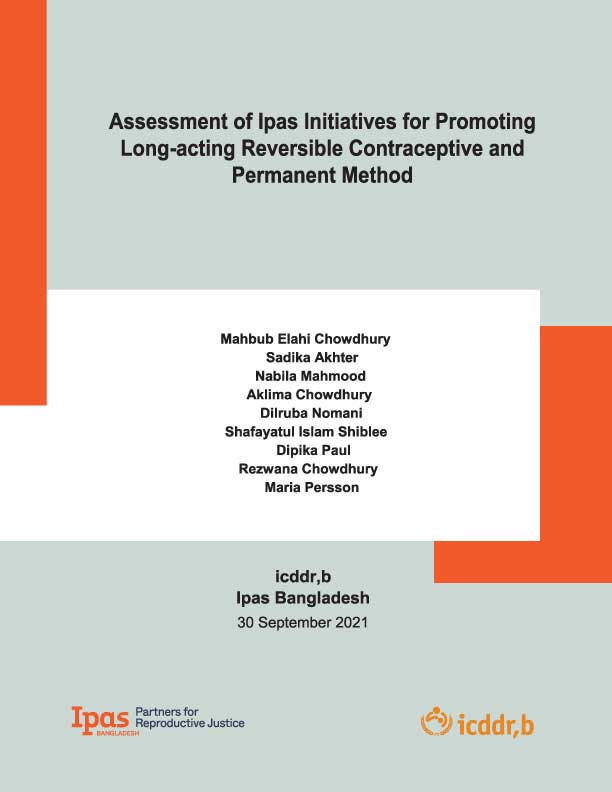
With an aim to reduce the unmet need for contraceptives in Bangladesh and to deliver PPFP and PAFP services to women with a special focus on promoting LARC and PM, Ipas implemented QFP project from October 2016 to July 2021. This study assessed the contribution of QFP project to promote LARC and PM in Ipas intervention facilities in Bangladesh to identify the enablers and/or hinders in uptake of LARC and PM.
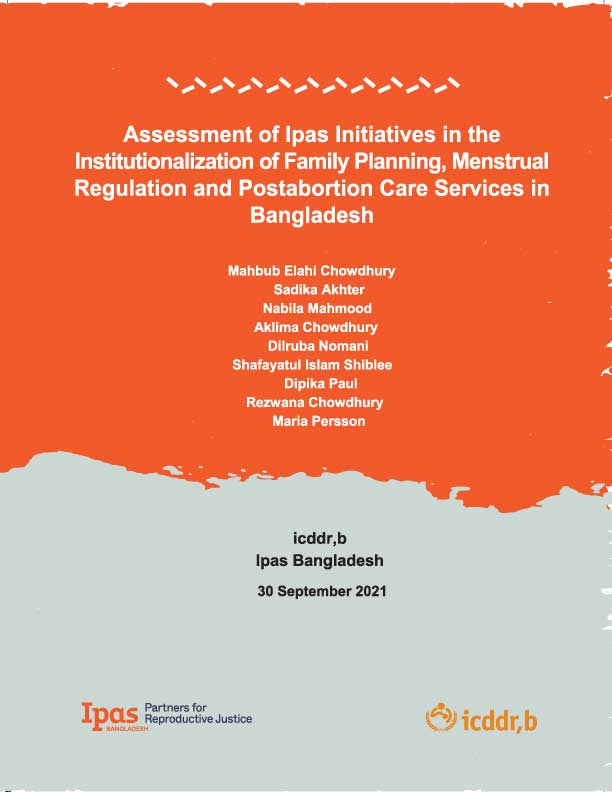
Ipas implemented a project titled “Family Planning in Bangladesh: Improving Quality and Access” briefly called QFP (Quality Family Planning) Project. The project activities were implemented during October 2016 – July 2021. This study aimed to assess the QFP project initiatives to strengthen family planning (FP), menstrual regulations (MR), and postabortion care (PAC) services and to assess the progress towards institutionalization of FP, MR and PAC services in Director General Health Service (DGHS) system.
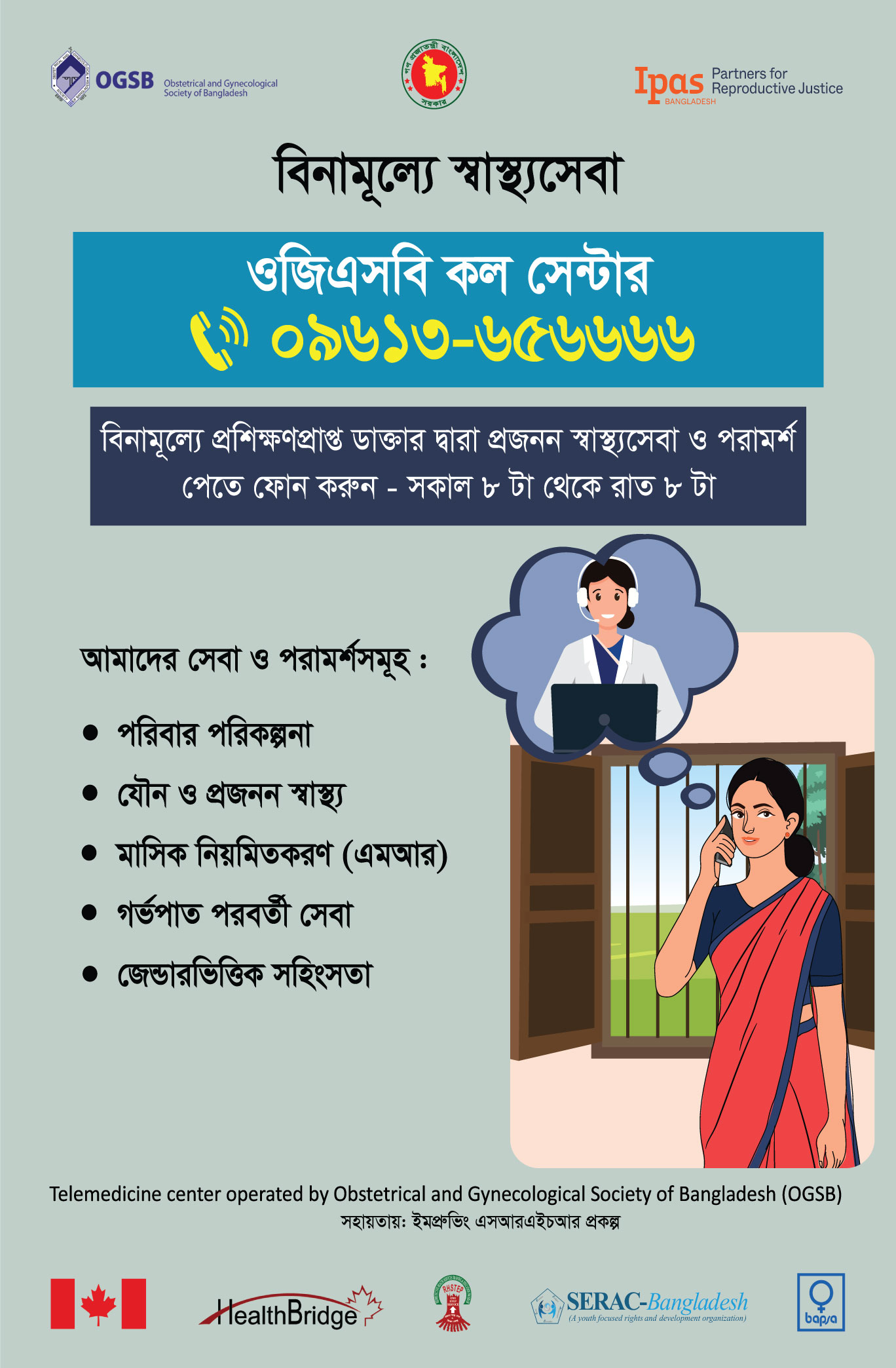
The ISRHR’D project has introduced the OGSB Call Center, launched in May 2023, as a step forward in digital health services. Offering free consultations, this initiative aims to bridge the socio-economic divide and ensure equitable access to SRHR services for underserved urban populations.
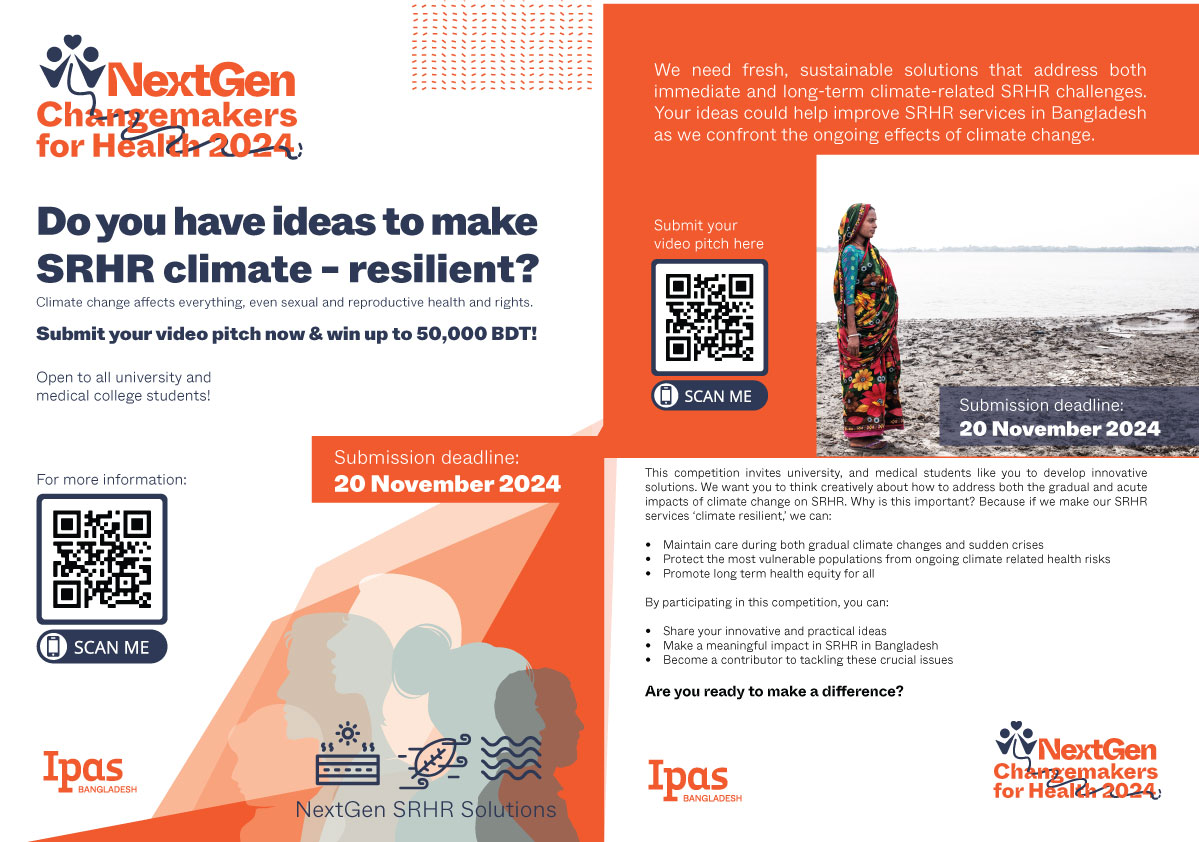
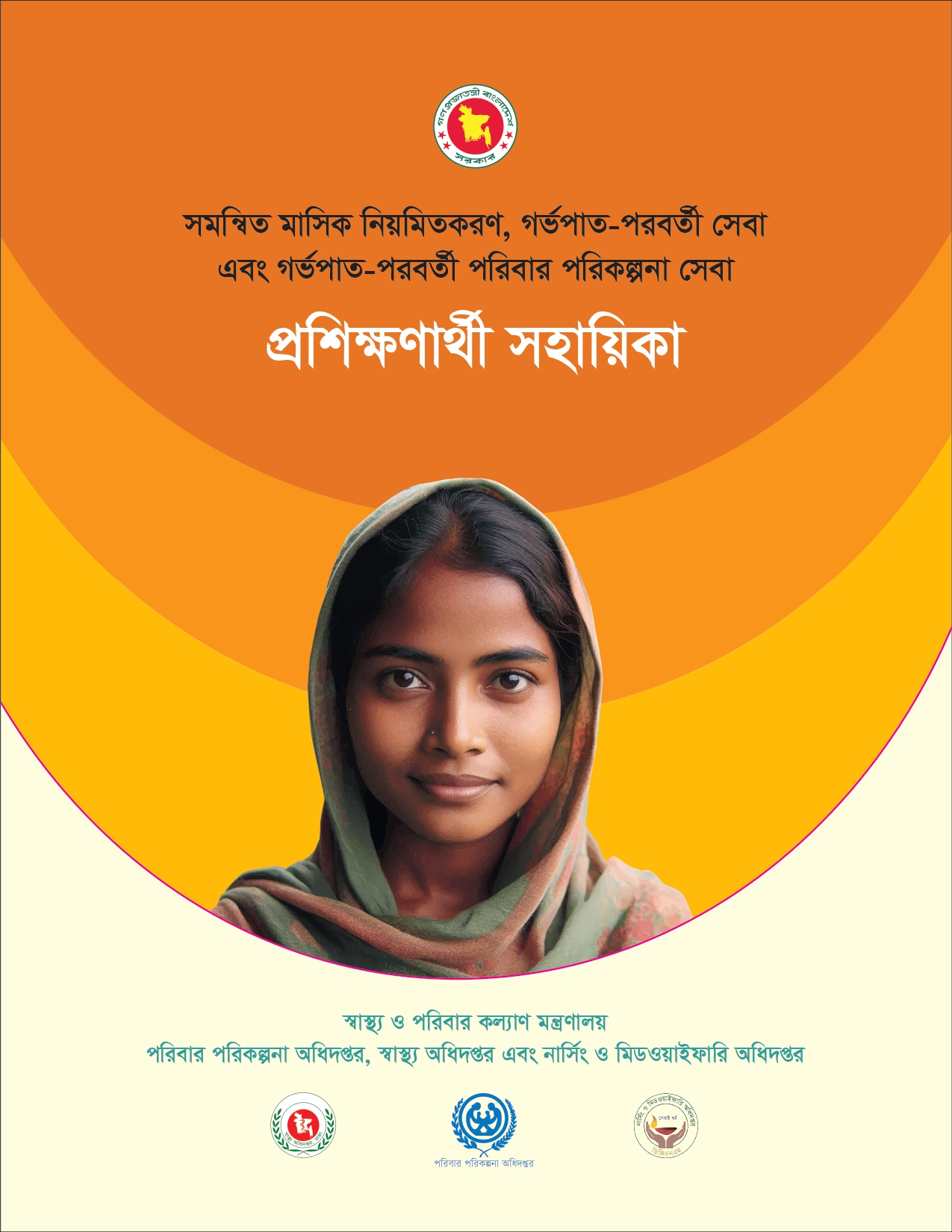
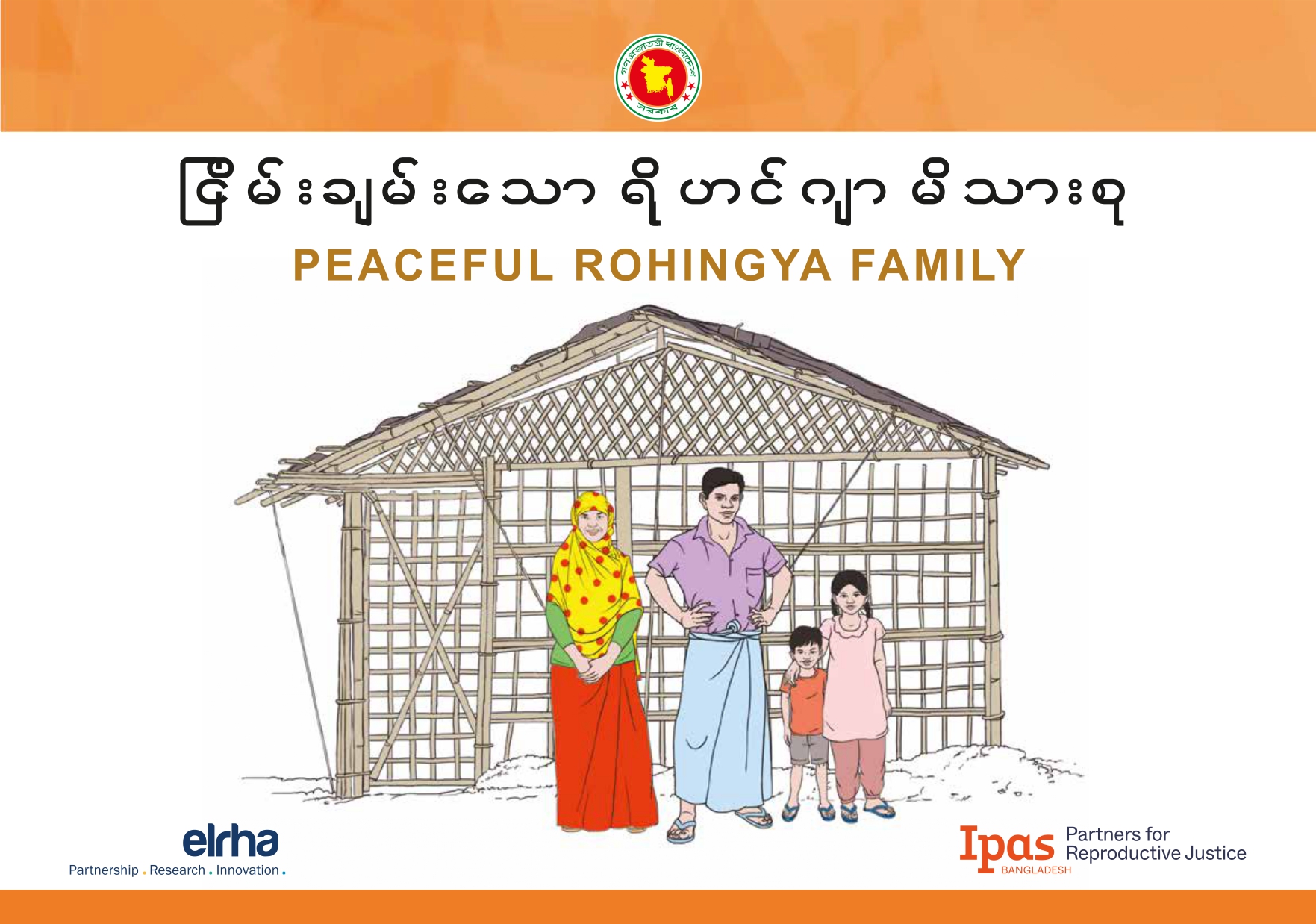
This flipchart, used by mid-level service providers, promotes interactive, client-centered communication in the Rohingya community. It helps correct misconceptions and fosters informed decision-making among women of reproductive age.
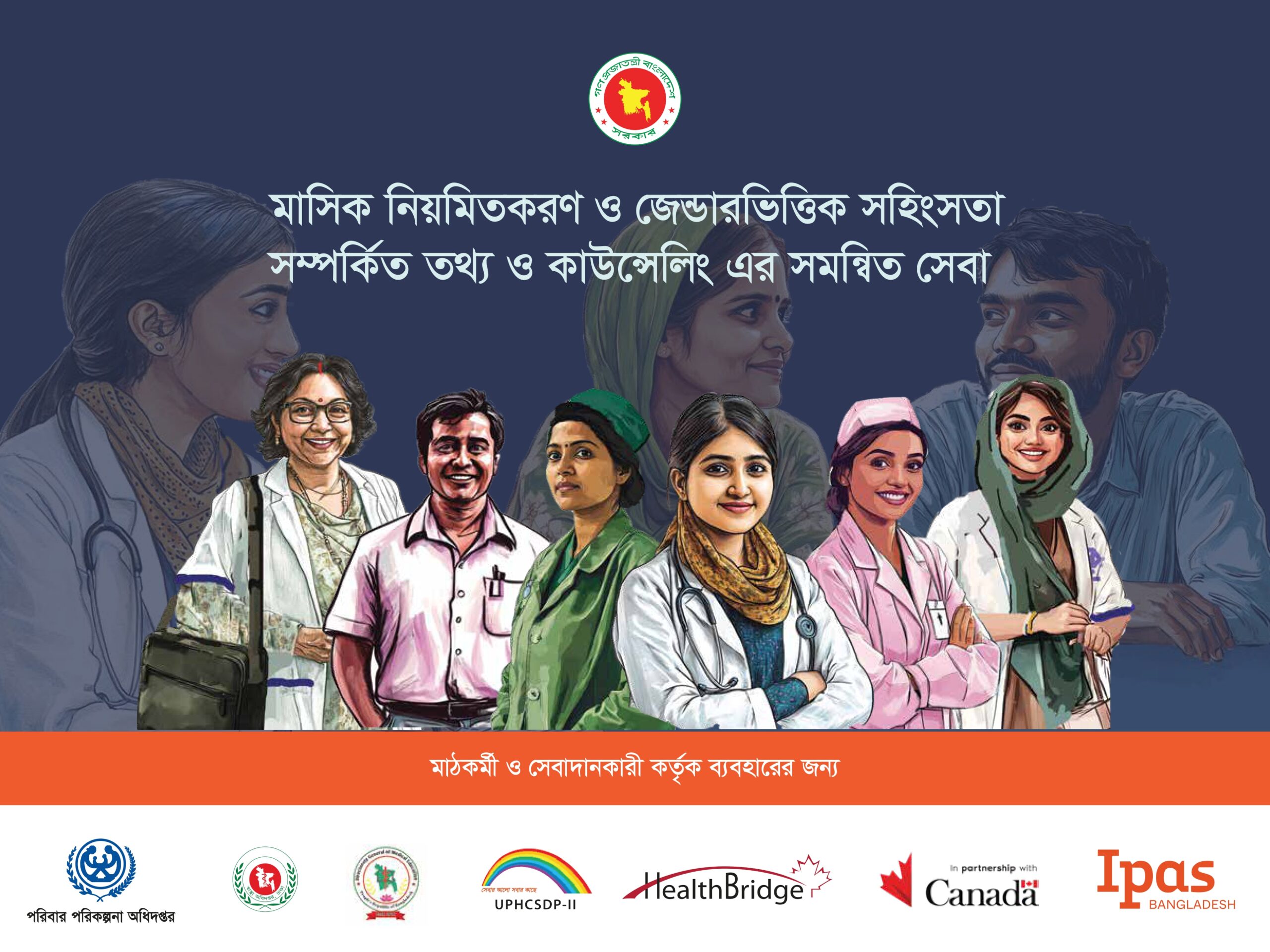
Covering key areas such as MR, Postabortion Care (PAC), SGBV, and post-MR family planning, the flipchart promotes interactive, client-centered communication. It helps correct misconceptions and fosters informed decision-making among women of reproductive age.

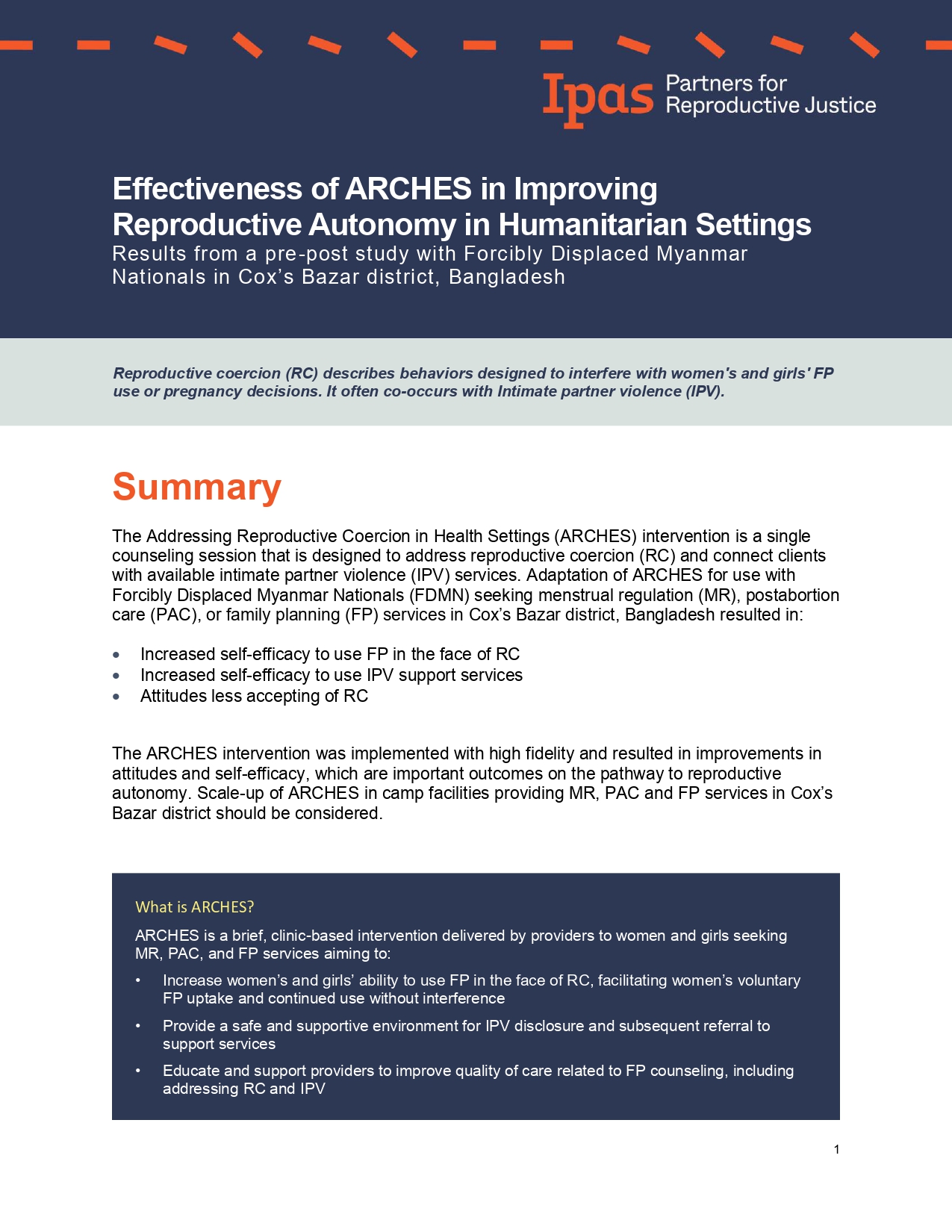
With the goal of identifying effective ways to provide support and strategies for women and girls experiencing these issues, Ipas Bangladesh led an innovative study in the sprawling Rohingya refugee camps located in Cox’s Bazar, Bangladesh in collaboration with the Center on Gender Equity and Health at the University of California, San Diego (UCSD).
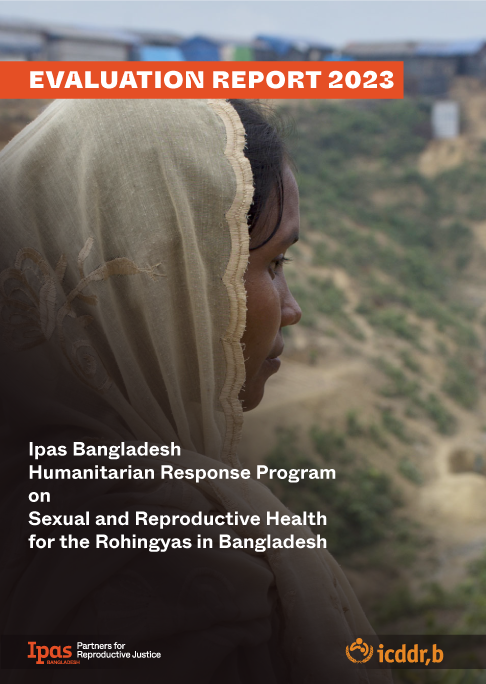
This evaluation report details the 2022 performance evaluation of the “Humanitarian Response Program” implemented in the Rohingya refugee camps in Cox’s Bazar, Bangladesh by Ipas.
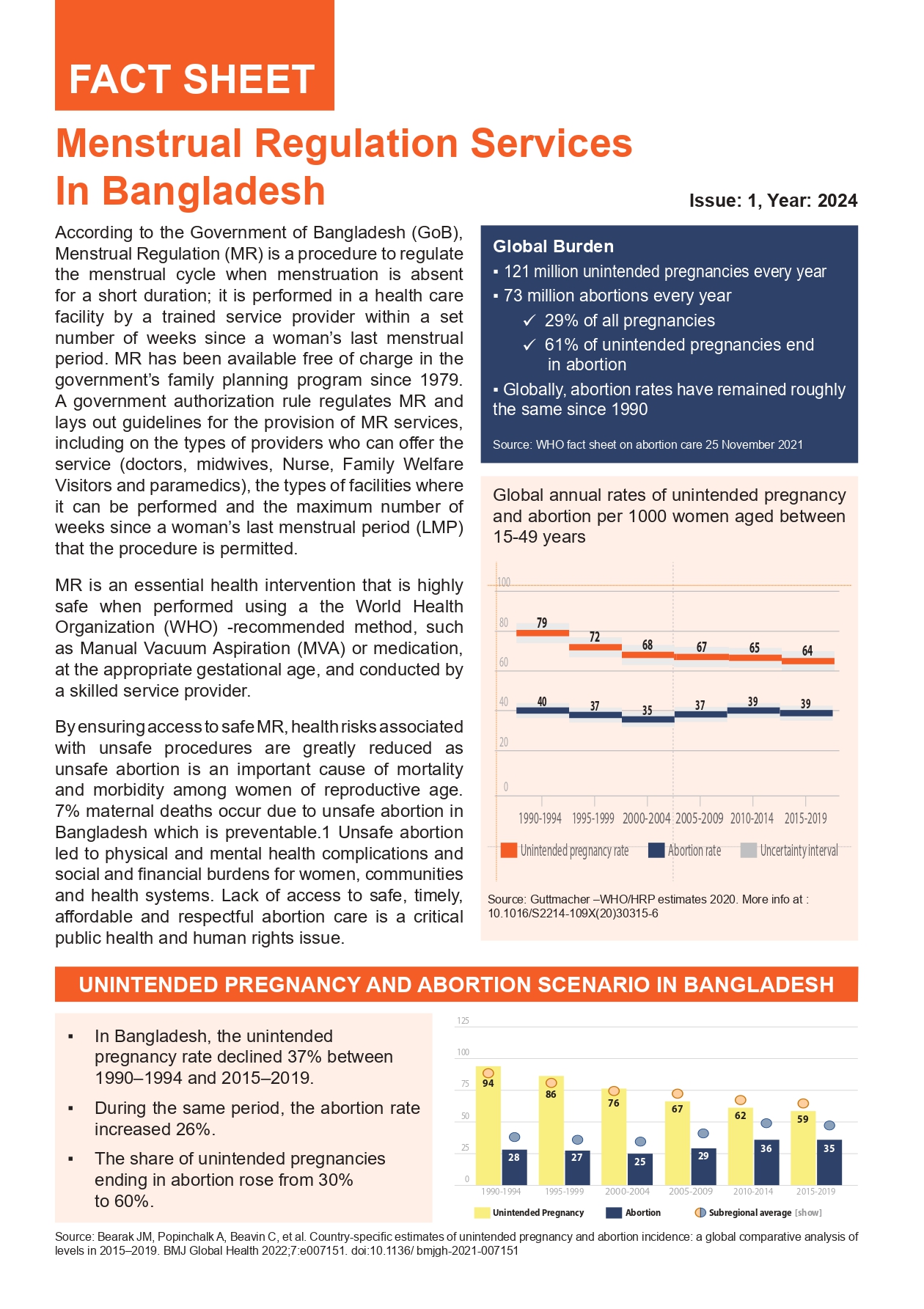
According to the Government of Bangladesh (GoB), Menstrual Regulation (MR) is a procedure to regulate the menstrual cycle when menstruation is absent for a short duration; it is performed in a health care facility by a trained service provider within a set number of weeks since a woman’s last menstrual period.
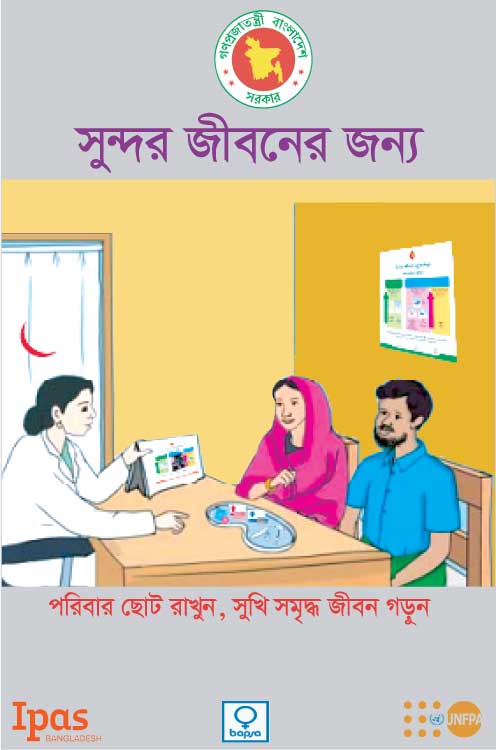
Family planning brochure for SBCC.
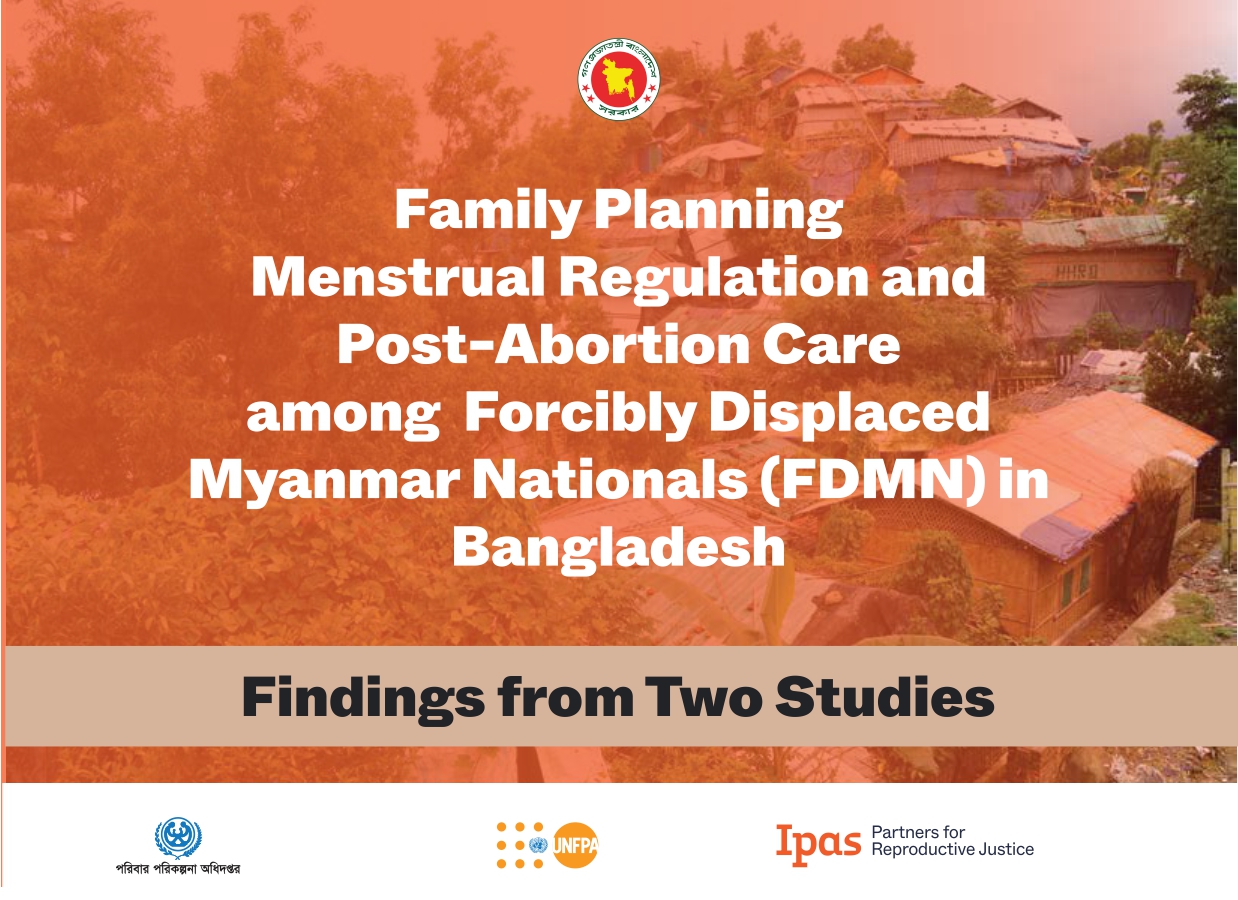
Findings from two studies:
The qualitative study is “Exploring Availability, Acceptability, Misconceptions, Myths and Social Barriers Related to Family Planning, Menstrual Regulation, and Post Abortion Care Services Among Forcibly Displaced Myanmar Nationals (FDMN).”
The quantitative study is on the “Knowledge, Attitude, Practices and Sources of Information about Family Planning, Menstrual Regulation, and Post Abortion Care Services Among Forcibly Displaced Myanmar Nationals’ (FDMN).”
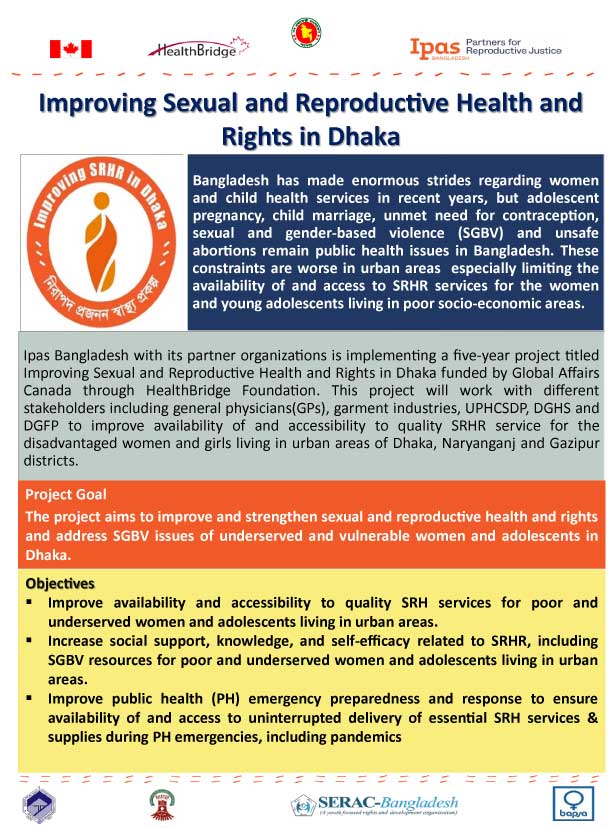
Brief description of “Improving Sexual and Reproductive Health and Rights” project.
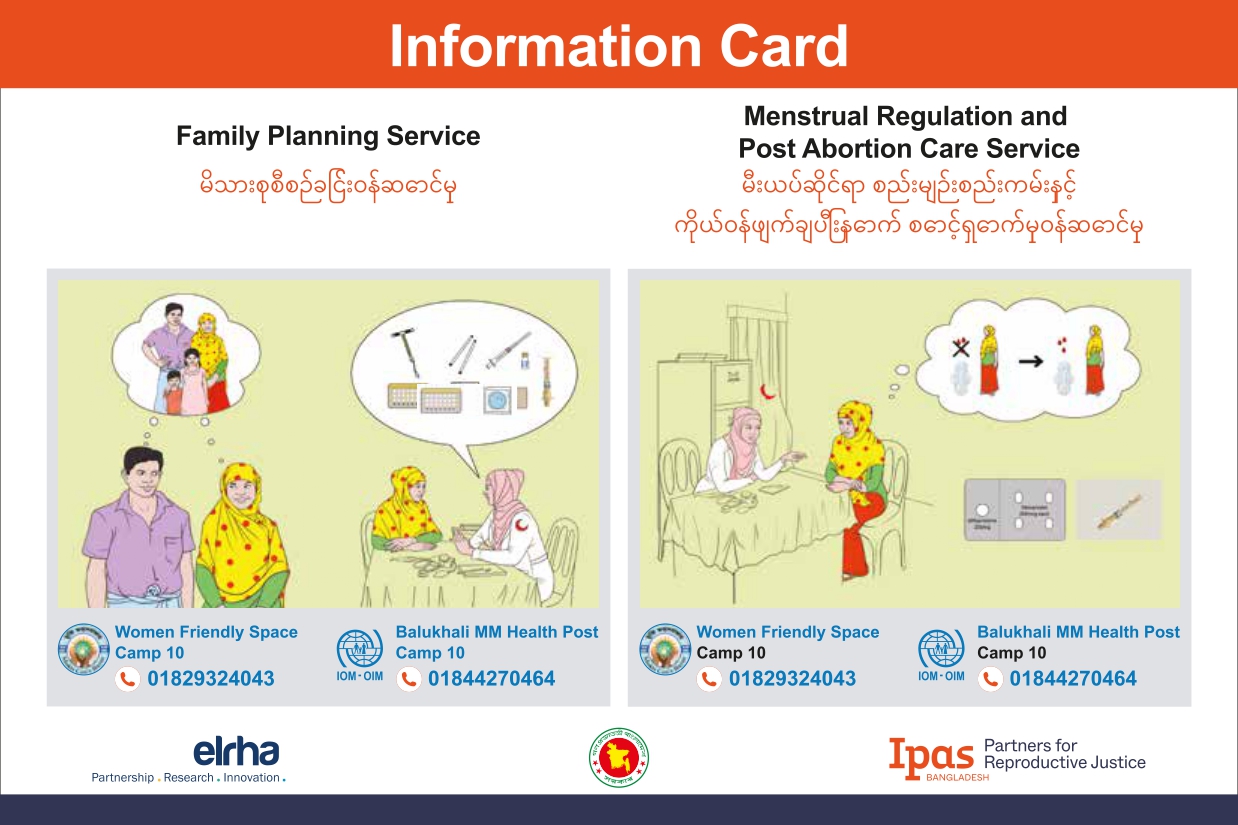
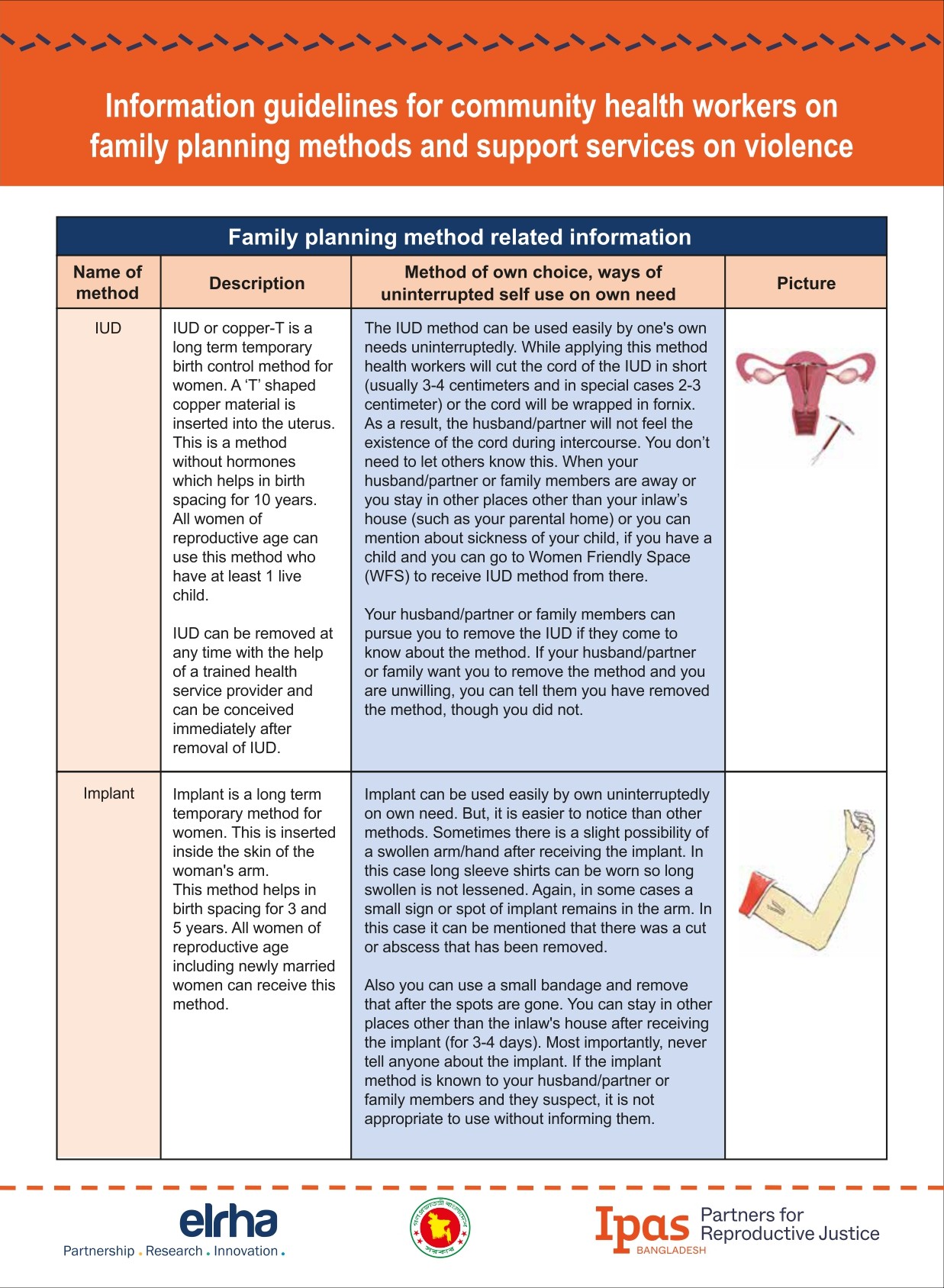
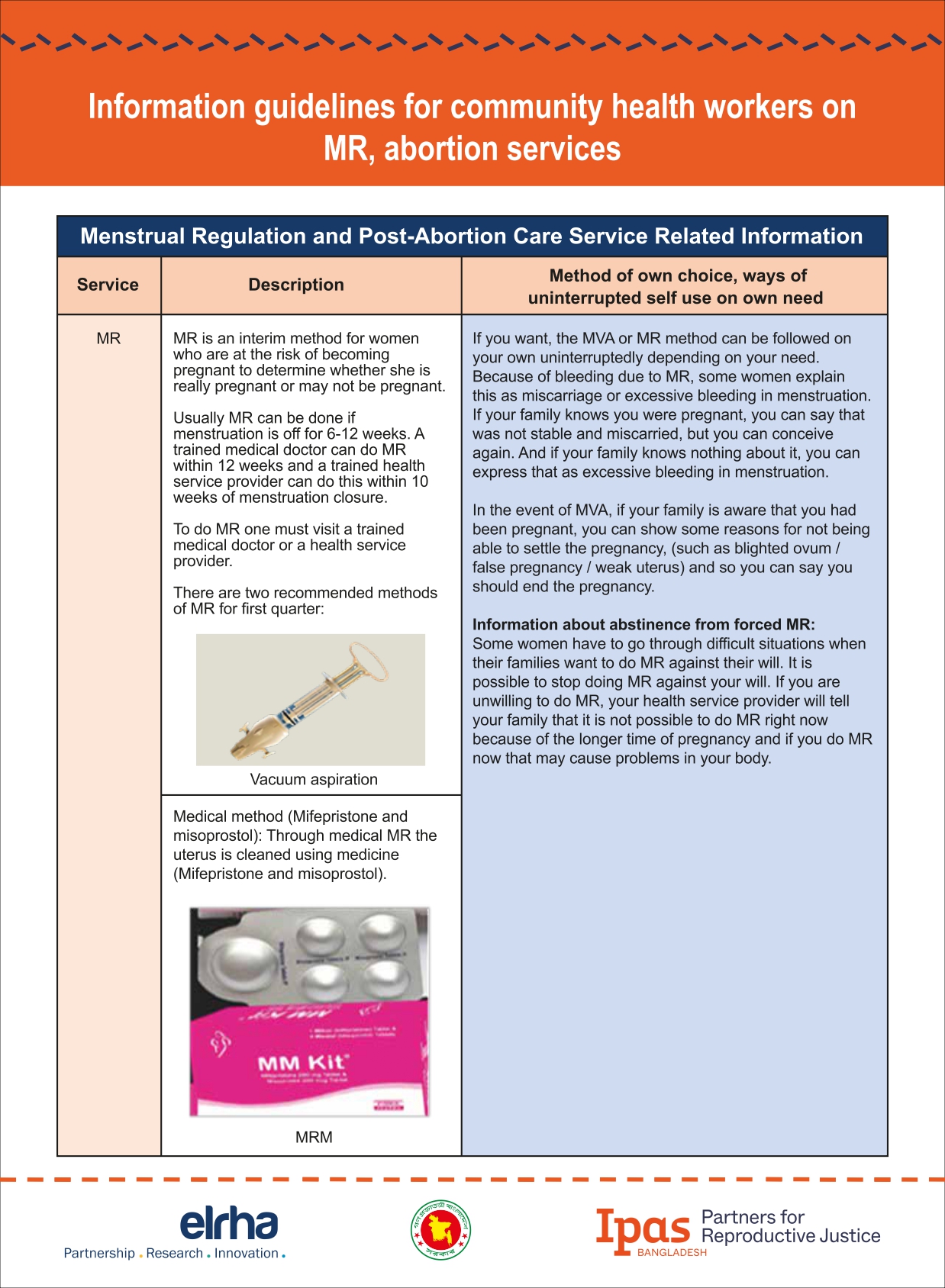
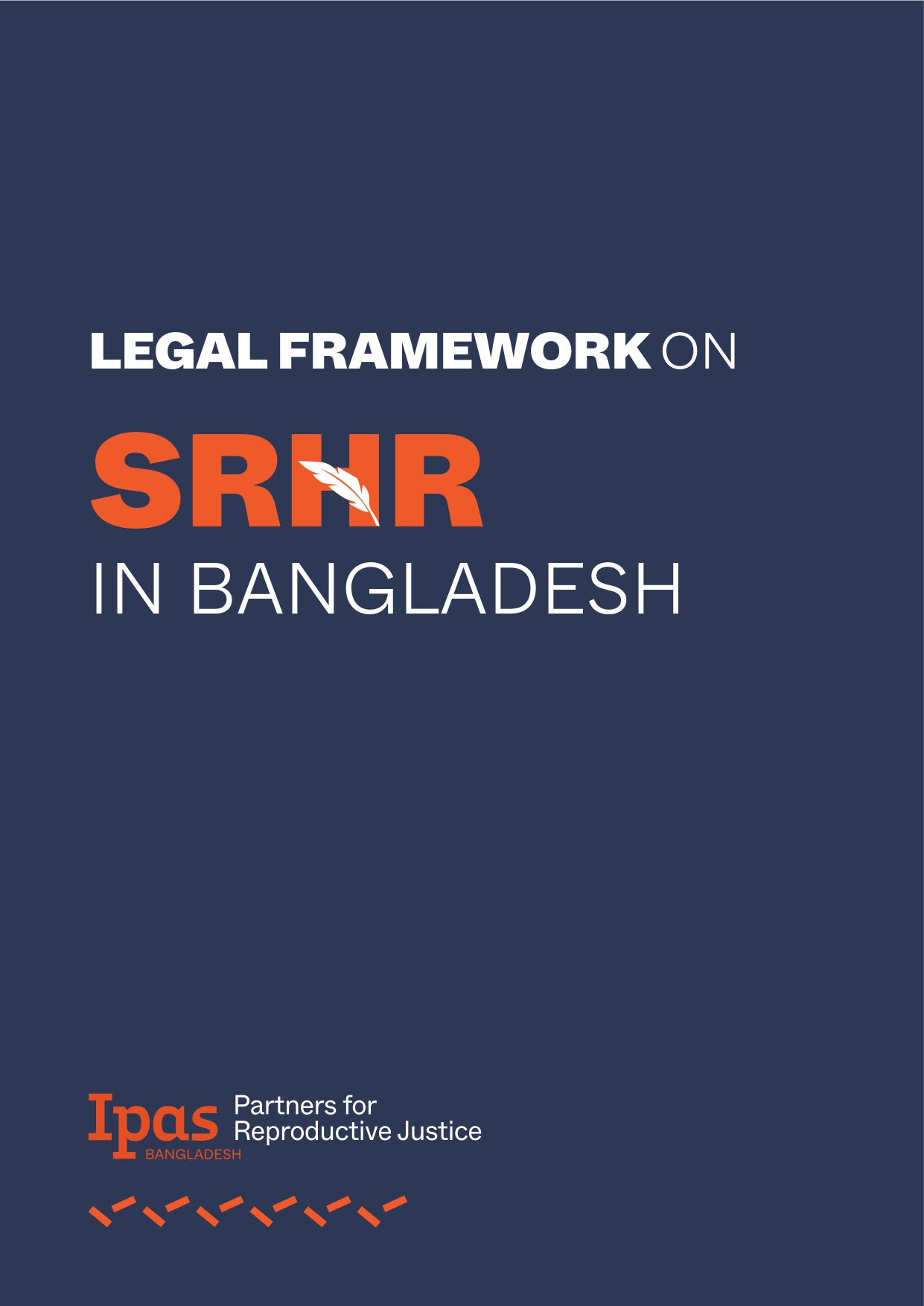
In Bangladesh, like many other countries, the legal framework
surrounding SRHR plays a critical role in shaping policies, safeguarding rights, and creating an
enabling environment for individuals to exercise their reproductive autonomy.
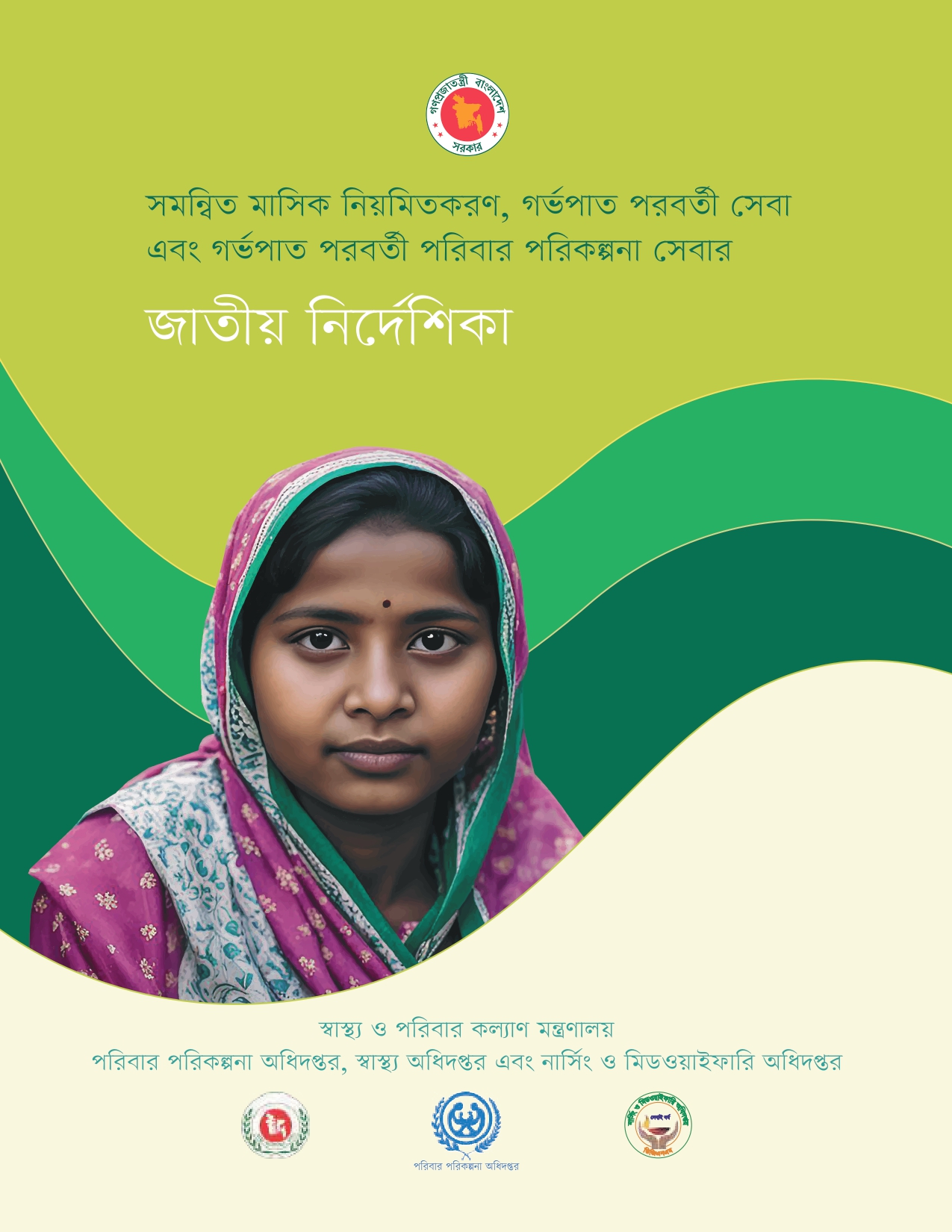
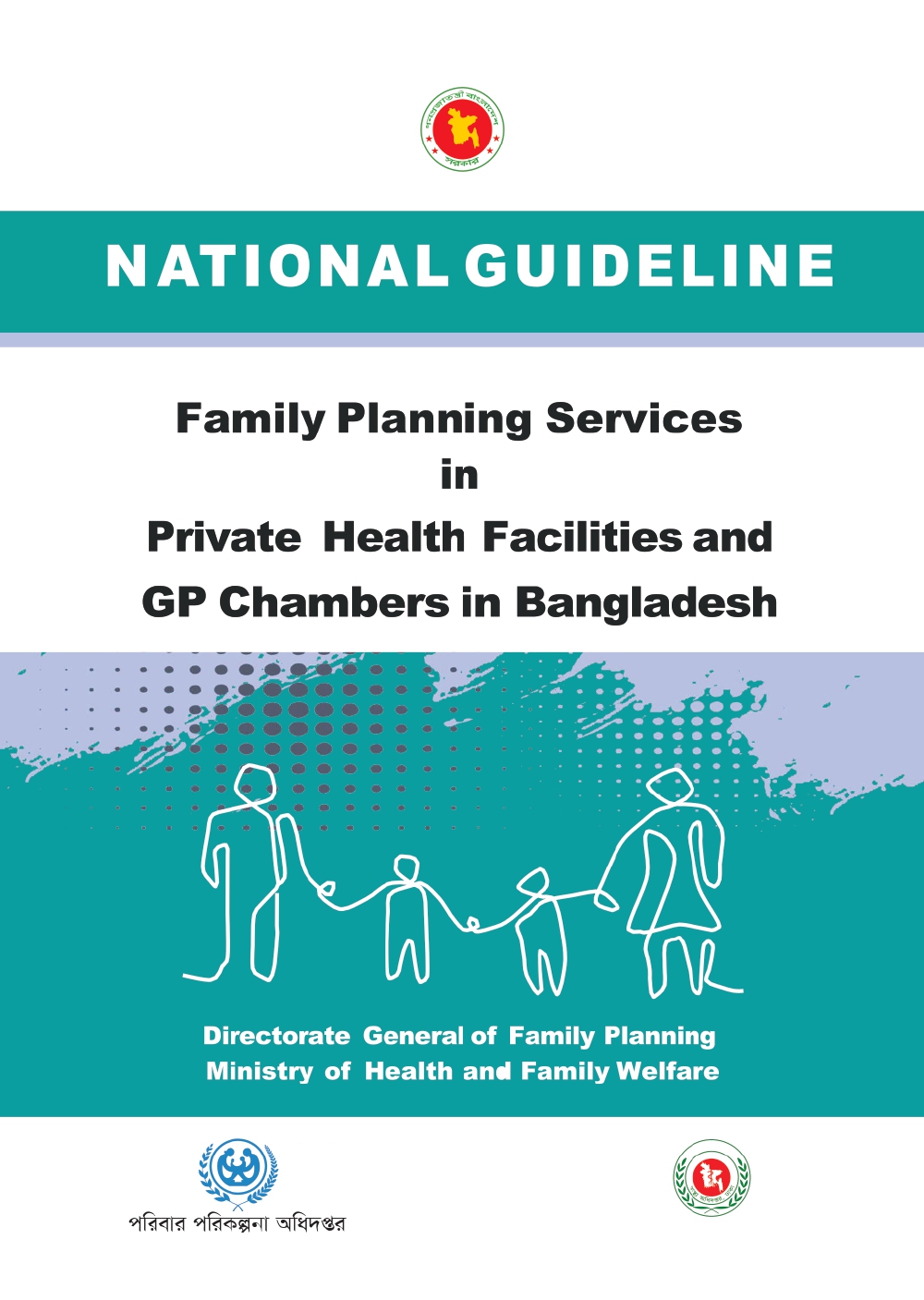
This guideline serves to support private health facilities—Private Medical College Hospitals, Private Hospitals, Clinics, Nursing Homes, and General Practitioners (GPs) and specialists, including Ob-Gyn specialists in private practice—to actively participate in delivering quality family planning services in alignment with government policies, rules, and regulations. It establishes minimum standards for women-centered and respectful family planning services, ensuring the availability of commodities, equipment, logistics, and data management systems for effective program implementation and monitoring.
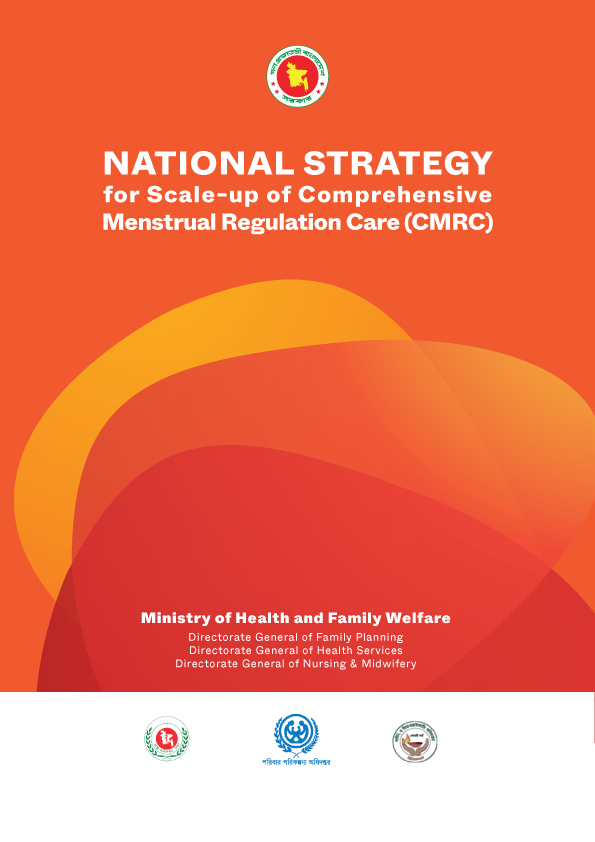
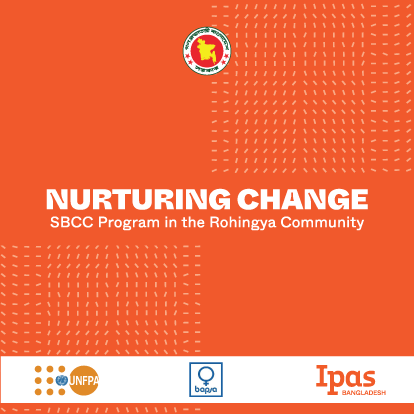
SBCC activity in the Rohingya community.
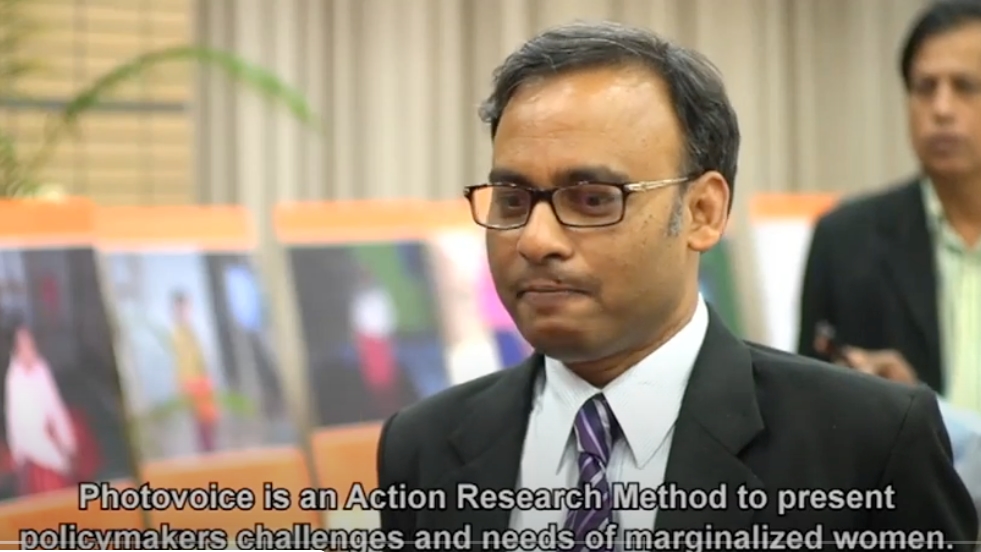
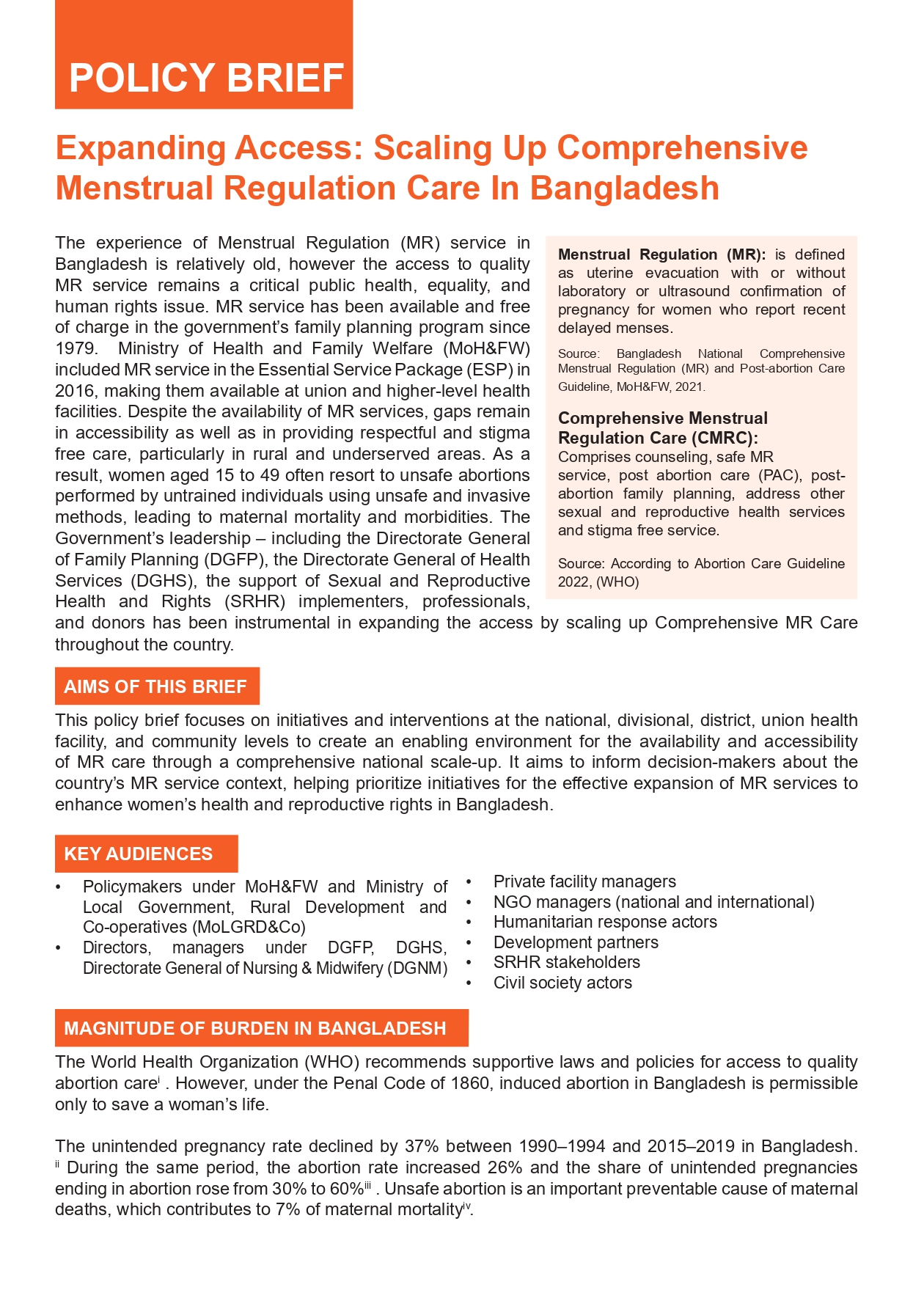
Expanding Access: Scaling Up Comprehensive
Menstrual Regulation Care In Bangladesh
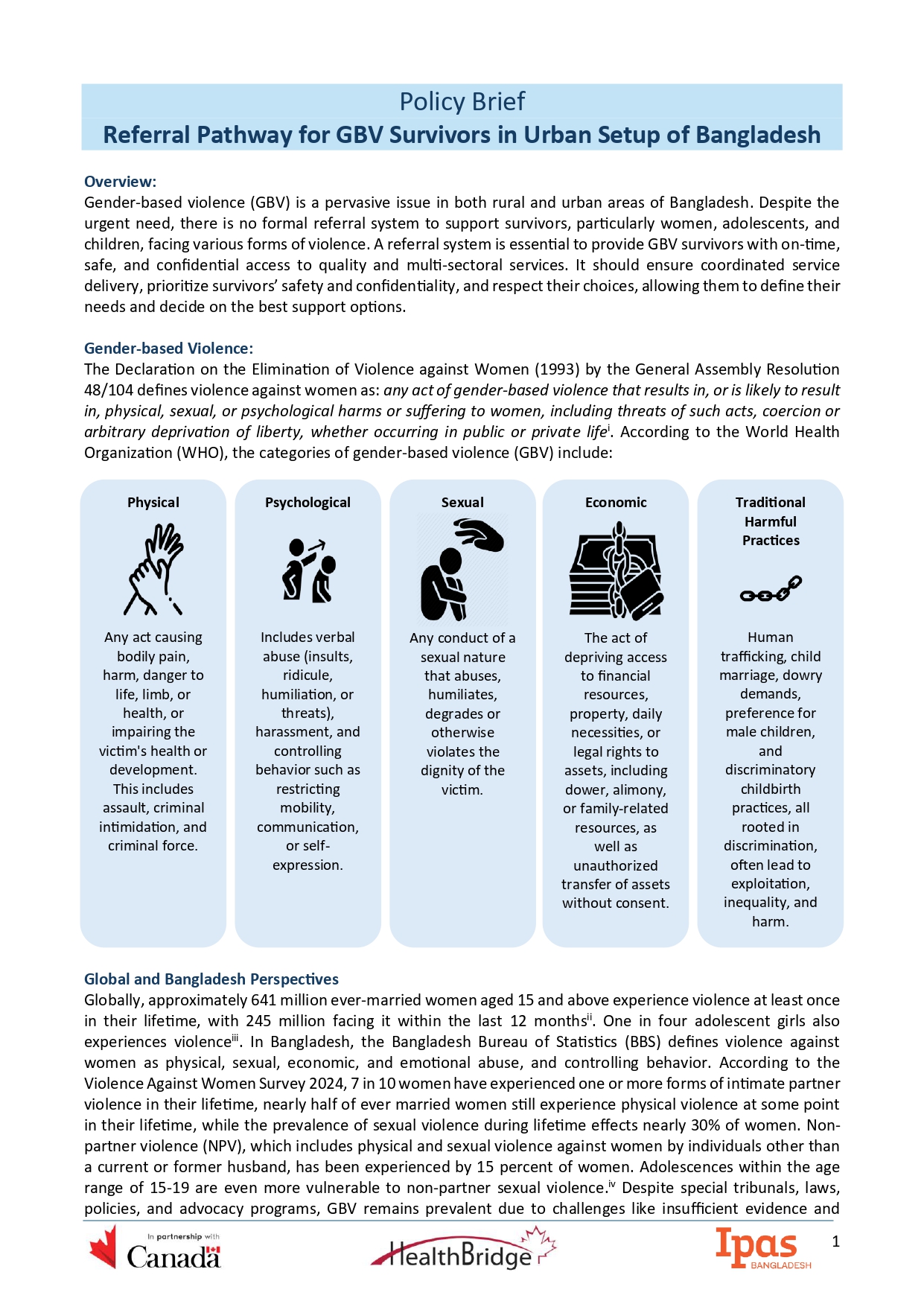
This referral system aims to promote zero tolerance through community awareness, improve service-seeking behavior among GBV survivors, build provider capacity for gender-responsive care, and strengthen the health system with a gender lens.
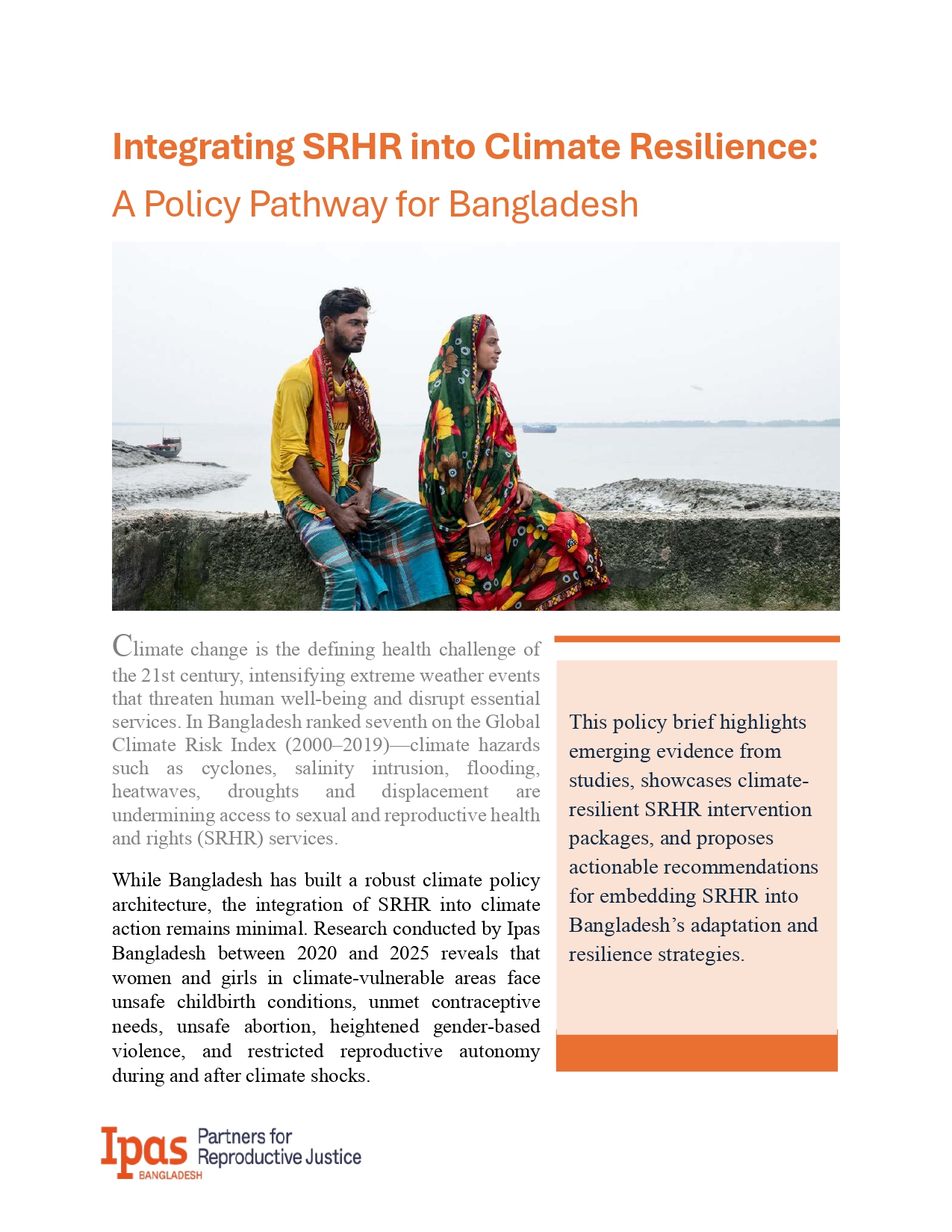
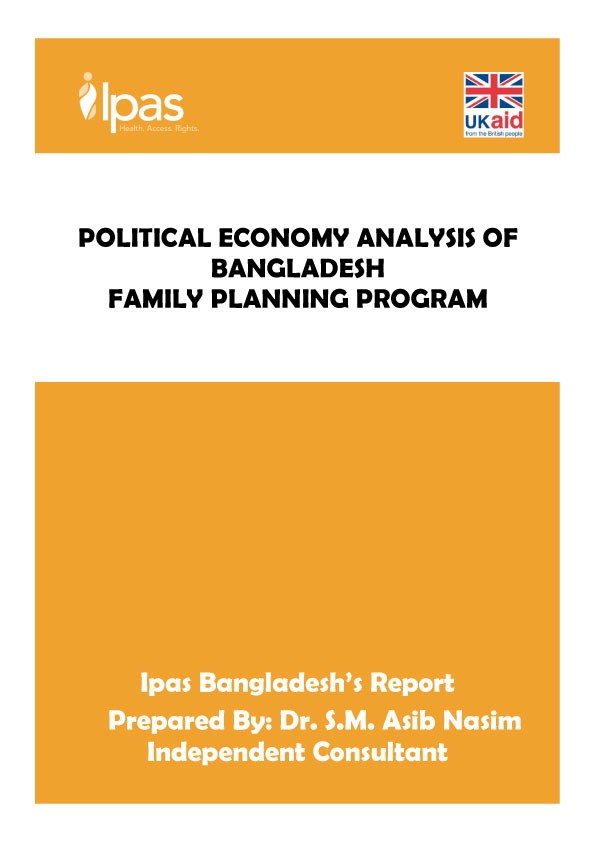
Political Economy Analysis of Bangladesh Family Planning Program.
There was no file for this on the website - need to add one.
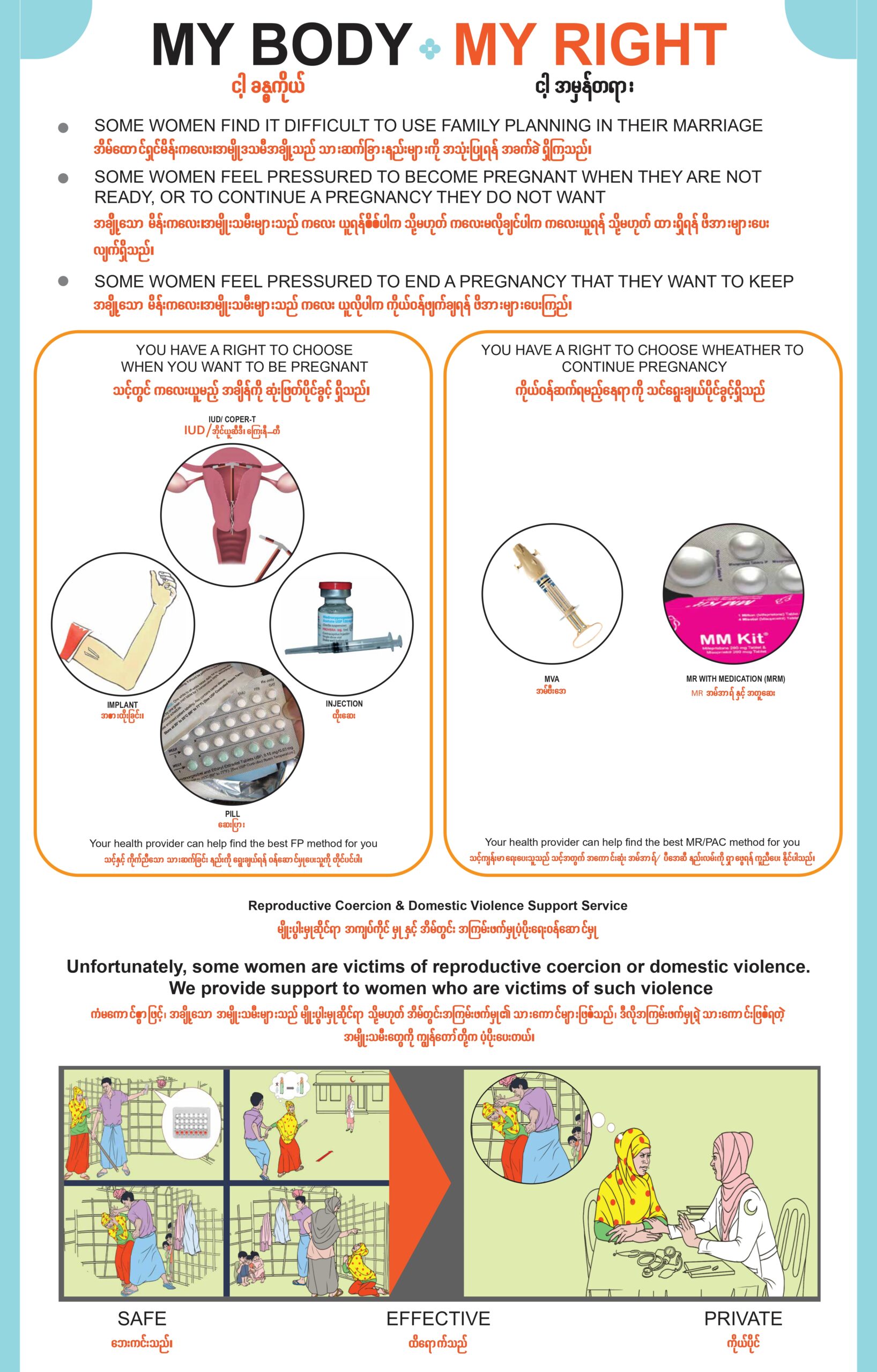
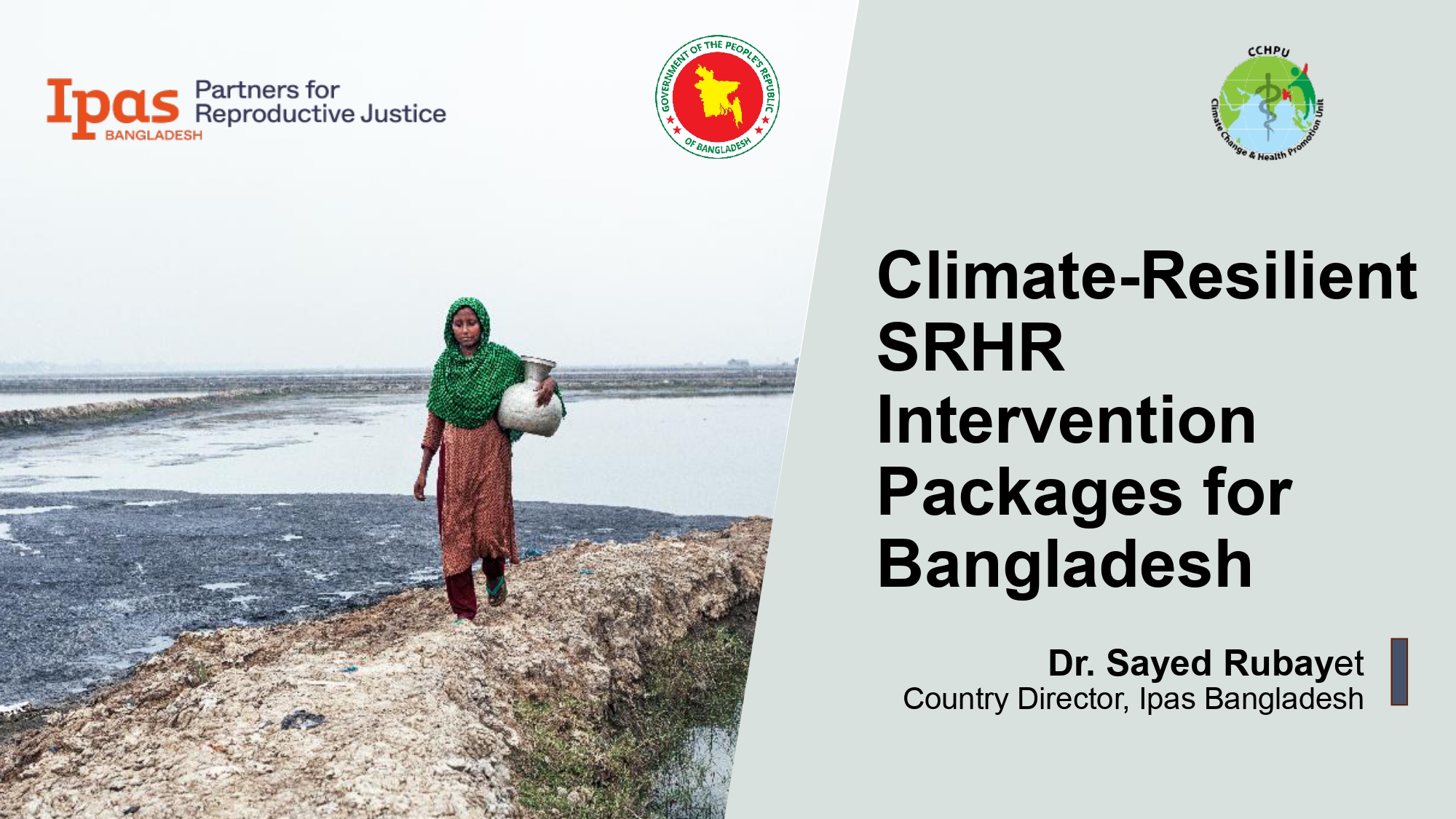
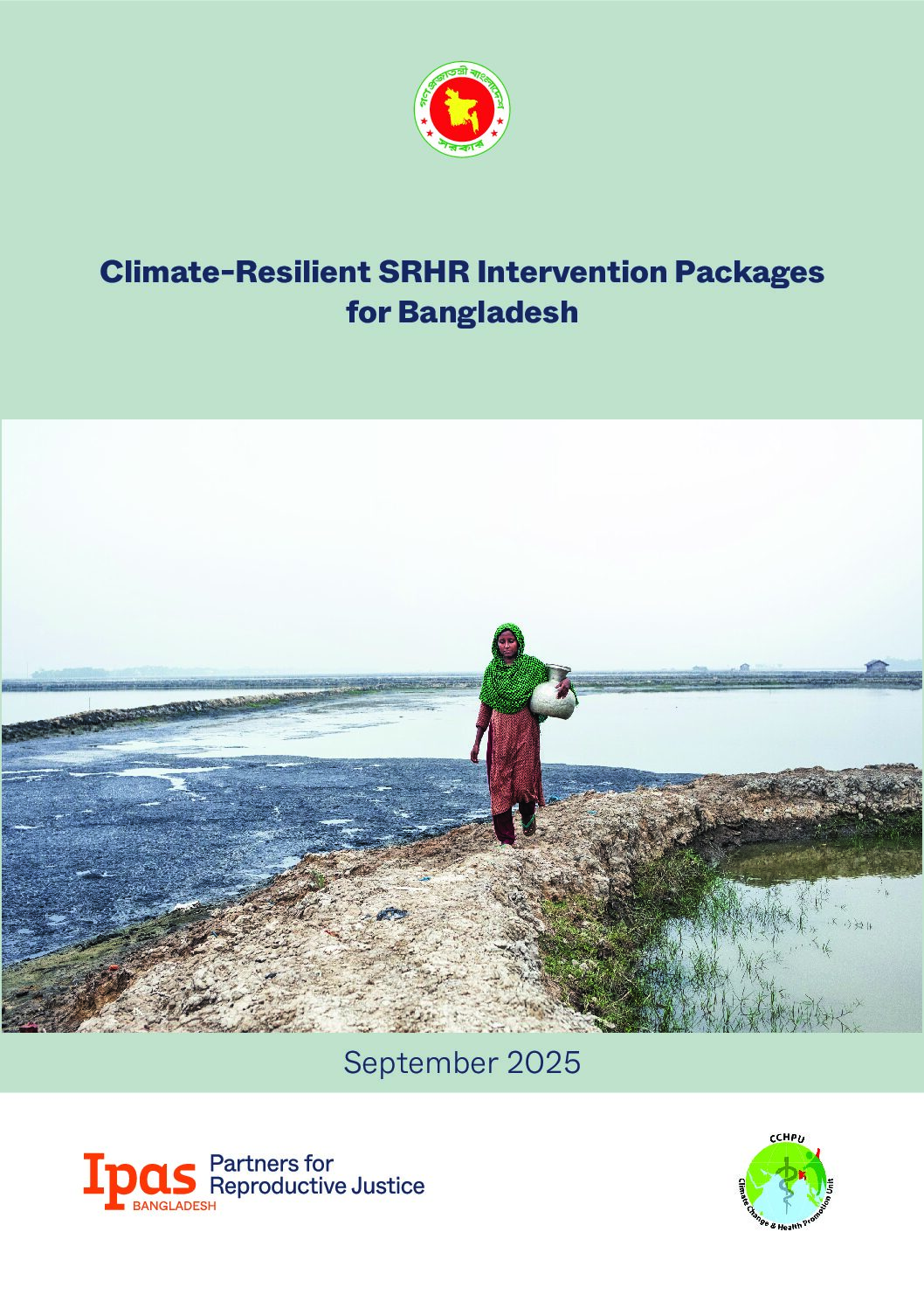
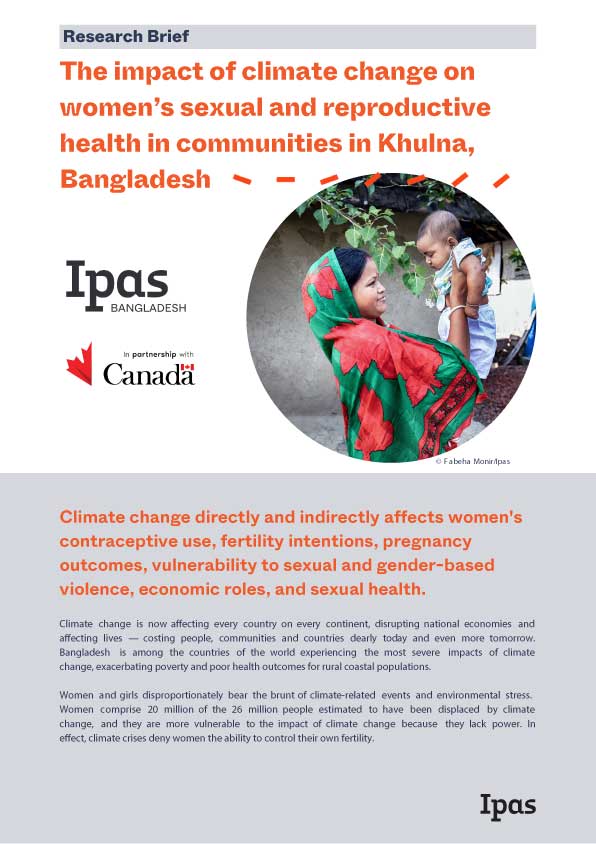
Research brief -The impact of climate change on women’s sexual and reproductive health in communities in Khulna, Bangladesh.
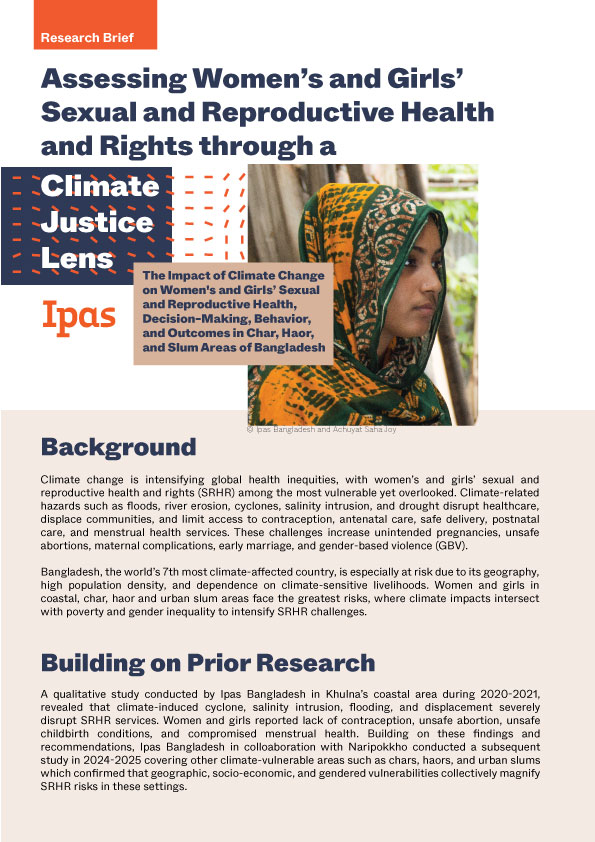
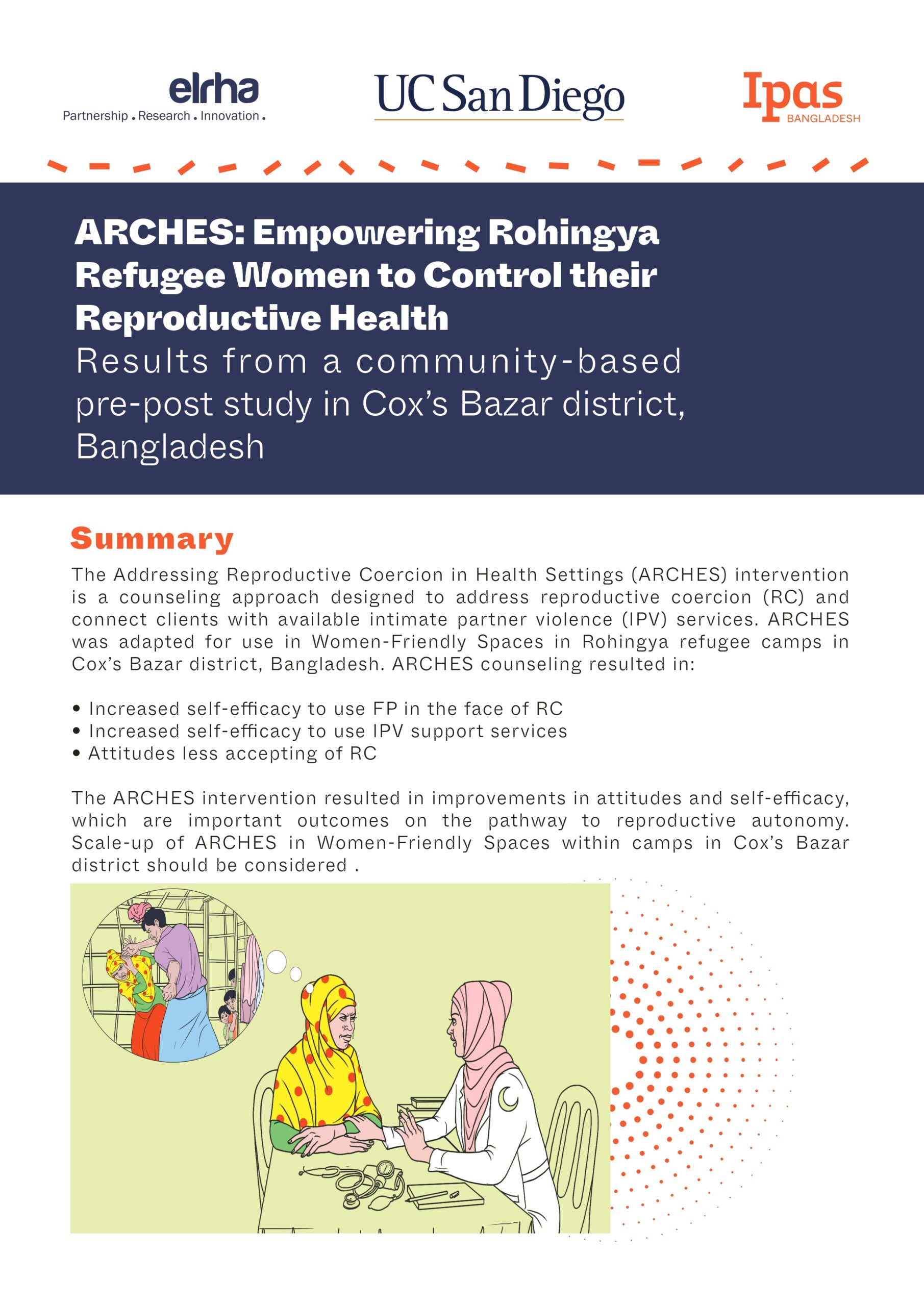
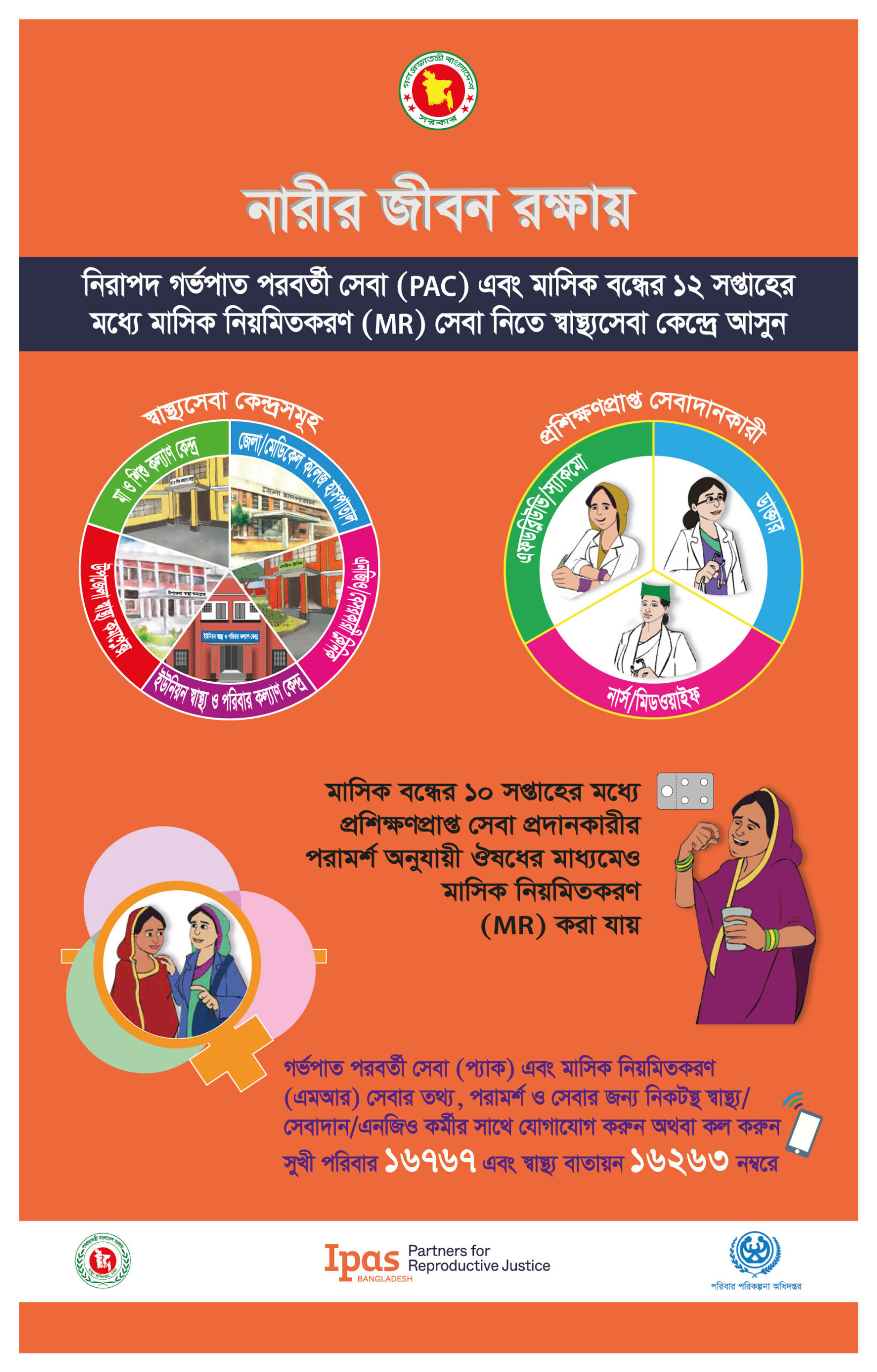
Posters in native language.

The Photovoice Album presents a collection of 26 photo stories captured by 25 dedicated community youth volunteers from North and South City Corporation areas of Dhaka. These photo stories shed light on the sexual and reproductive health and rights (SRHR) scenario in these communities, offering a firsthand perspective on the issues and challenges faced by women and adolescents living in low-socio economic areas of Dhaka.
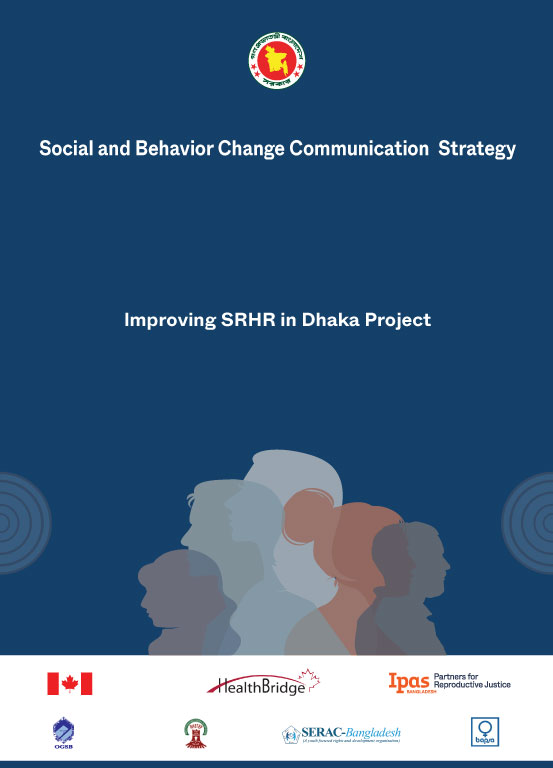
The SBCC strategy developed by the Improving Sexual and Reproductive Health and Rights in Dhaka Project will serve as a roadmap for communication activities that aims to raise awareness, change behaviors, and improve access to SRHR services. Key components of the strategy include targeted messaging, community mobilization, capacity building for service providers, and the use of various communication channels.
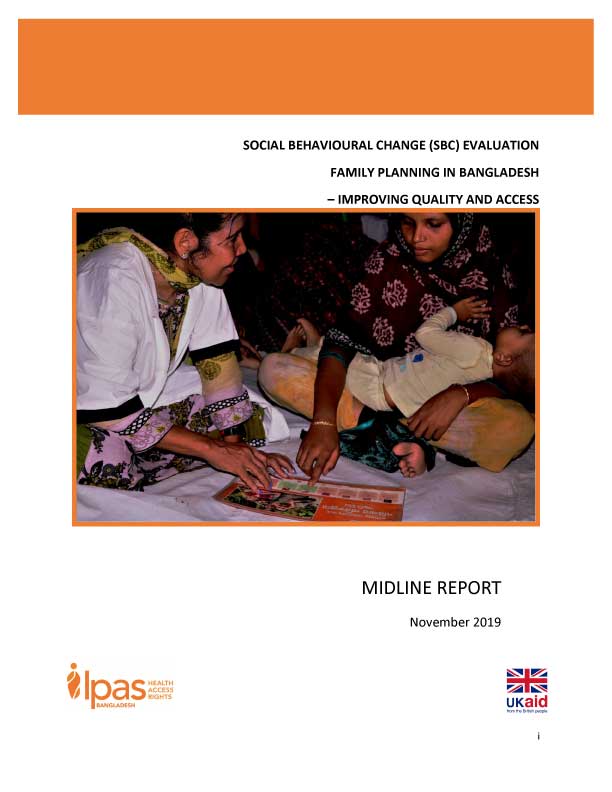
Although Bangladesh has made noticeable progress in reducing maternal mortality and morbidity over the past decades the total fertility rate is higher than the wanted fertility rate and the use of modern contraceptives is lower than the demand, indicating unmet need for family planning. Further, the use of long-acting and permanent methods in Bangladesh is low and misconception on family planning methods is prevalent. Women’s and girls’ ability to access sexual and reproductive health service, including family planning services, and their utilization of these services are influenced by a number of factors, amongst others, cultural and societal norms and personal knowledge and beliefs.
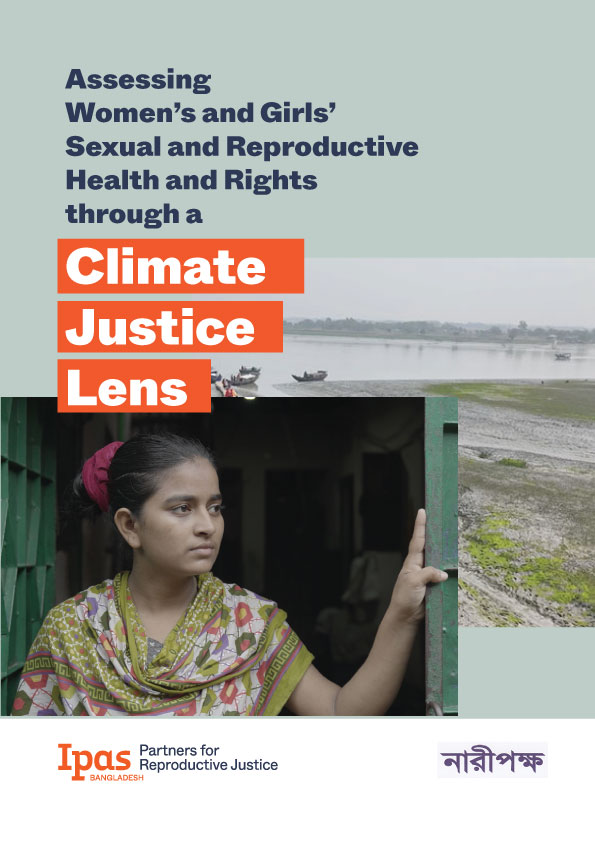
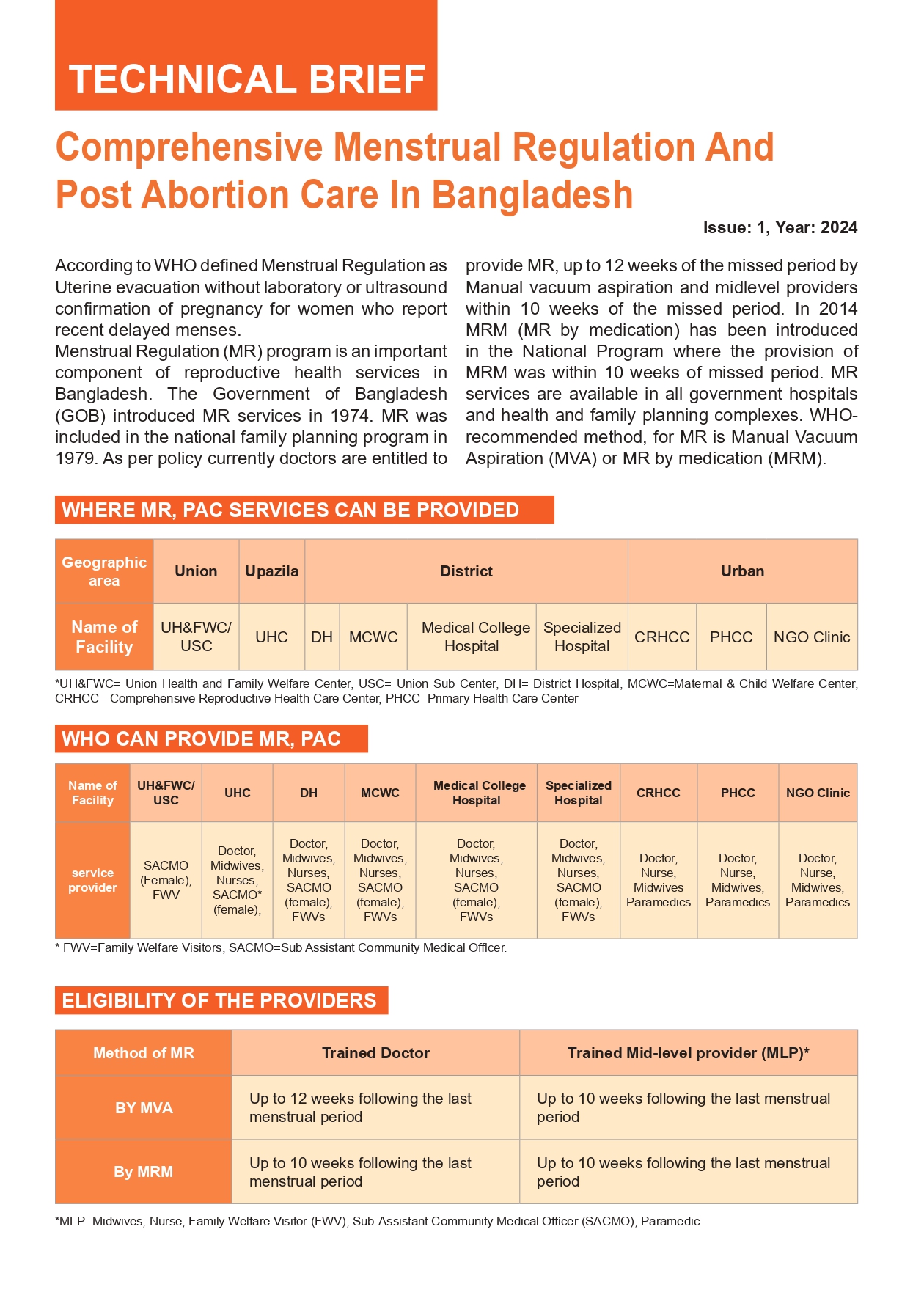
Menstrual Regulation (MR) program is an important
component of reproductive health services in
Bangladesh. The Government of Bangladesh
(GOB) introduced MR services in 1974. MR was
included in the national family planning program in
1979. As per policy currently doctors are entitled to
provide MR, up to 12 weeks of the missed period by
Manual vacuum aspiration and midlevel providers
within 10 weeks of the missed period.
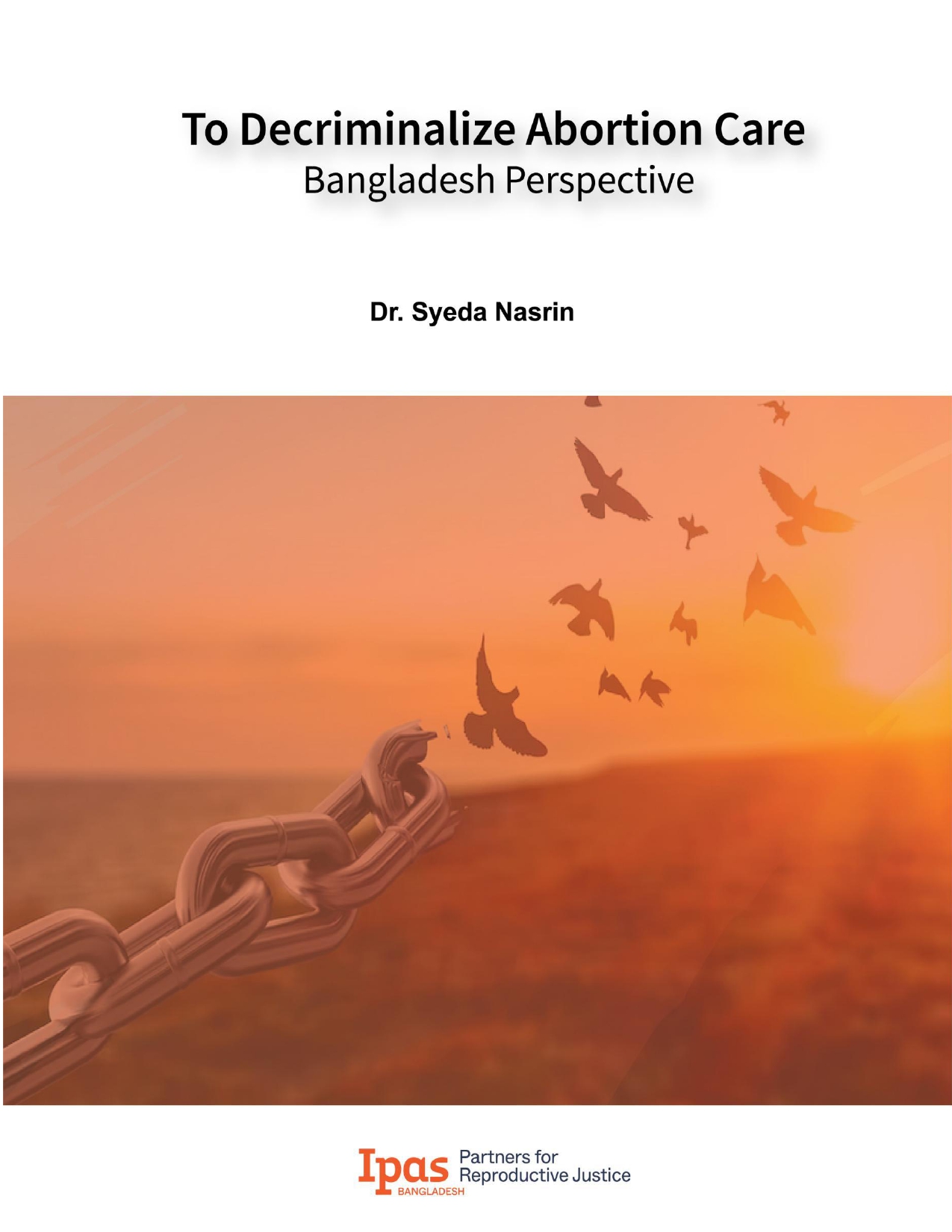
This comprehensive analysis focuses particularly on the legal landscape in Bangladesh, where the contradiction between the prevalence of abortion practices and their criminalization has created alarming consequences for women’s health and
rights.
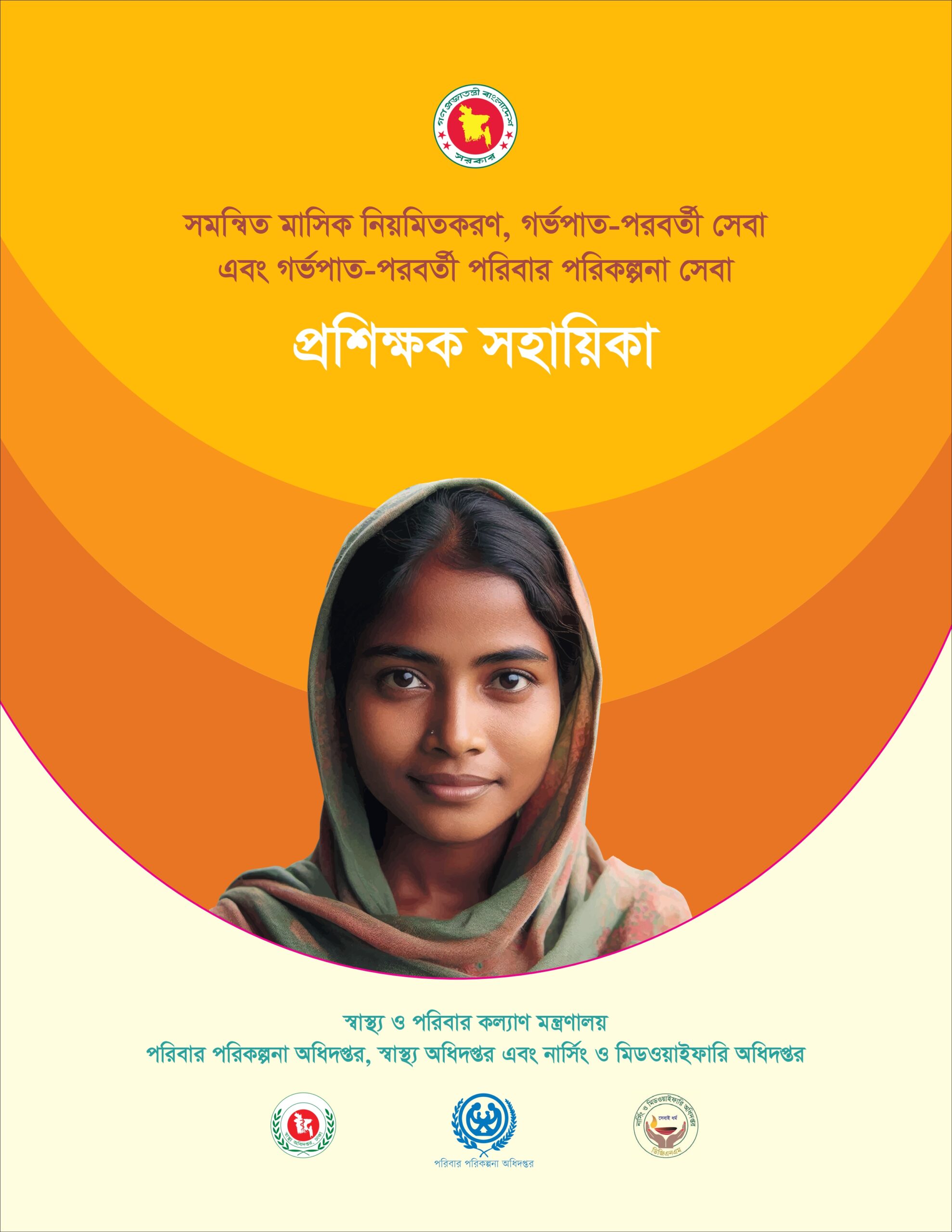
Under the leadership of the Maternal and Child Health (MCH) Services unit of the Directorate General of Family Planning (DGFP), Ipas Bangladesh has translated the National Guideline for Comprehensive Menstrual Regulation (MR), Post-abortion Care (PAC), and Post-abortion Family Planning (PAFP) services from English to Bangla.This guideline is an important resource that explains standard practices and policies, rules and regulations, step by step instructions for providing MR and PAC services (both surgical and medical), guidance for family planning after MR and abortion care. The guidelines are designed to help policymakers, health professionals, programme managers, service providers.

This reference manual is intended to help reduce maternal mortality and morbidity by ensuring universal access to sexual and reproductive health care services.
